The document discusses how new literacies and technology skills are important for students to develop in order to meet Common Core State Standards and be prepared for college. It provides examples of curriculum and lessons that help students improve their online research, organization, and evaluation abilities. While students are using technology more, they need guidance to learn how to effectively and ethically use the internet for academic purposes. The examples shown integrate literacy, research skills, and various subjects like science and art.
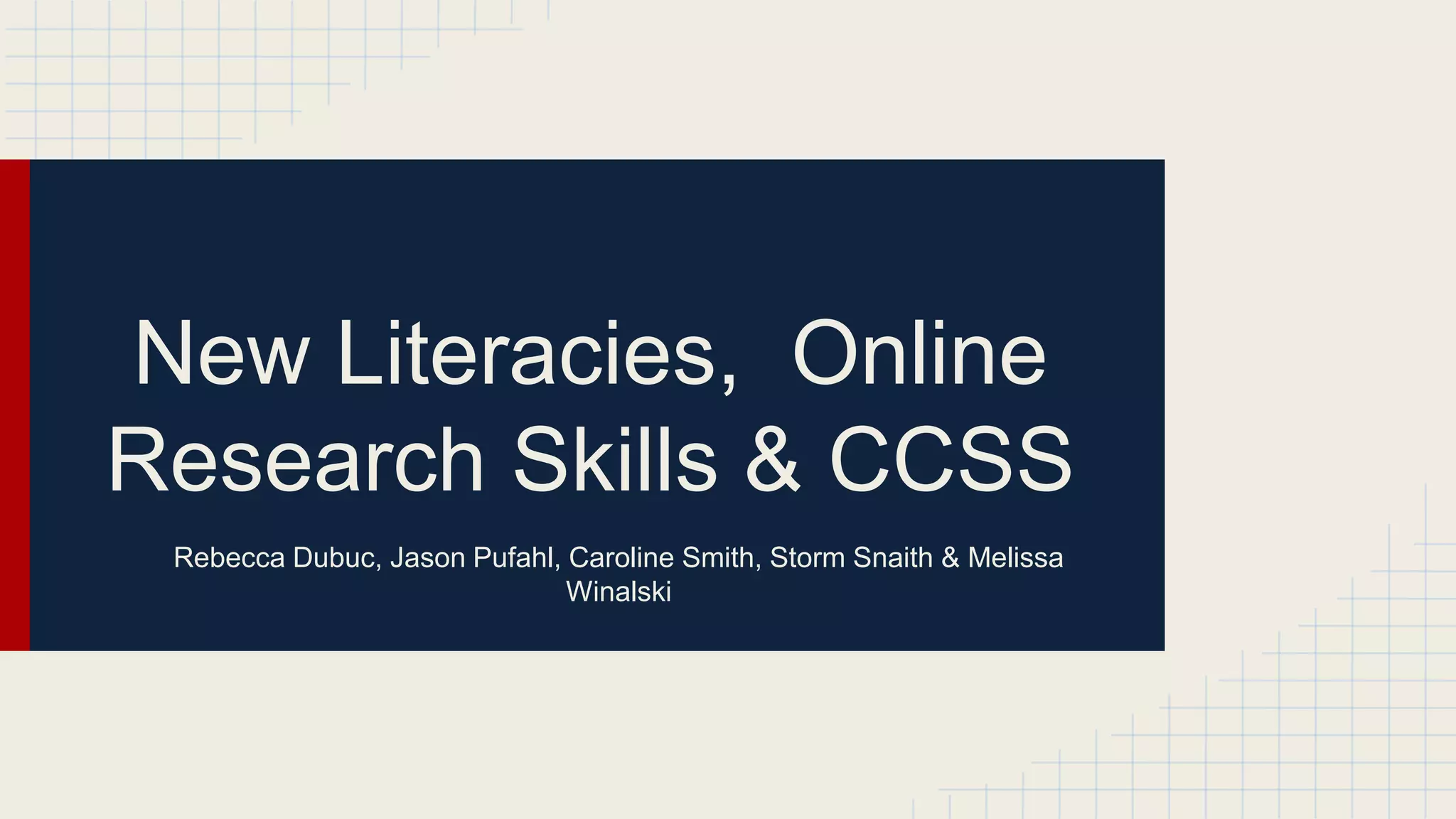
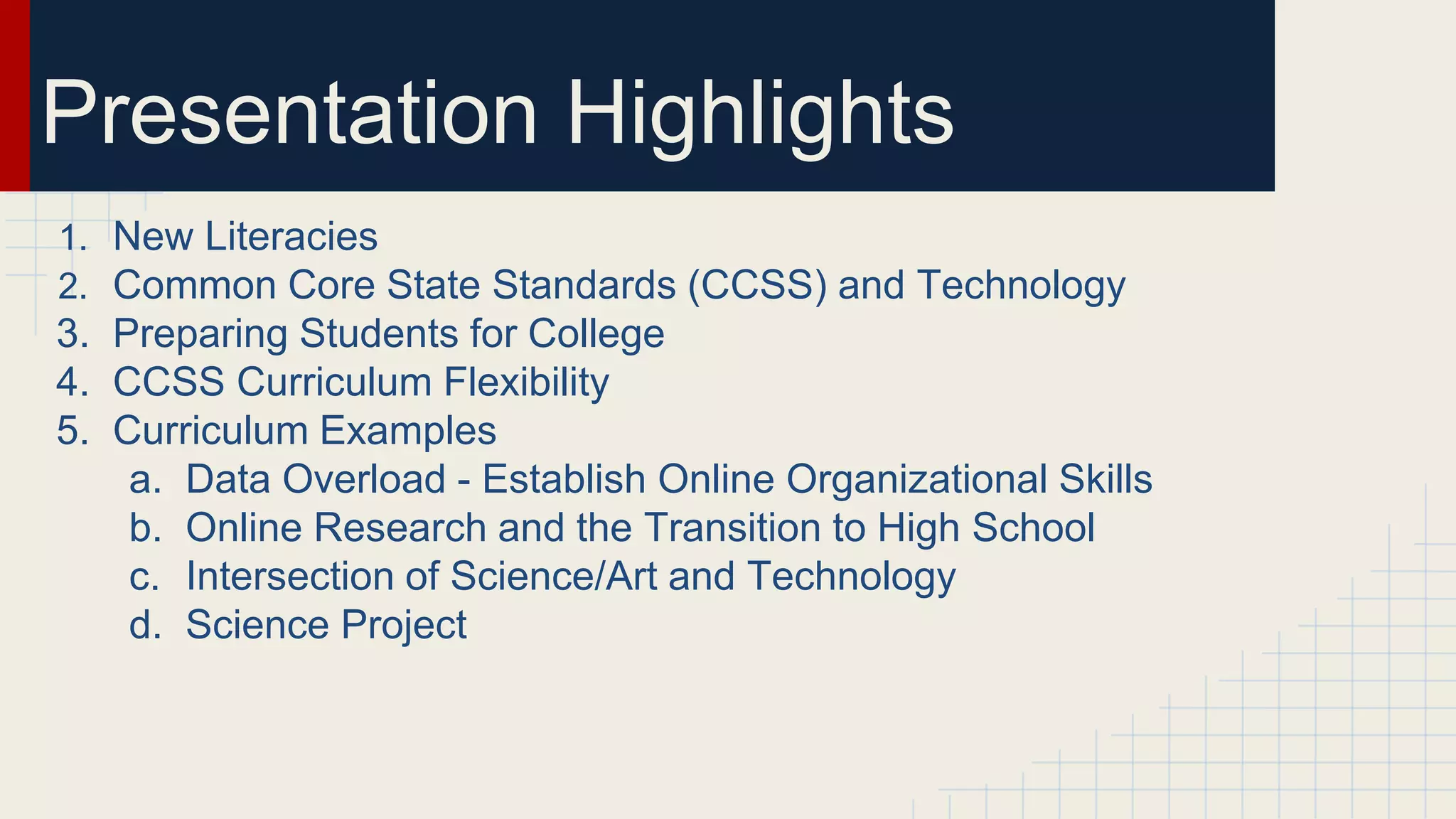
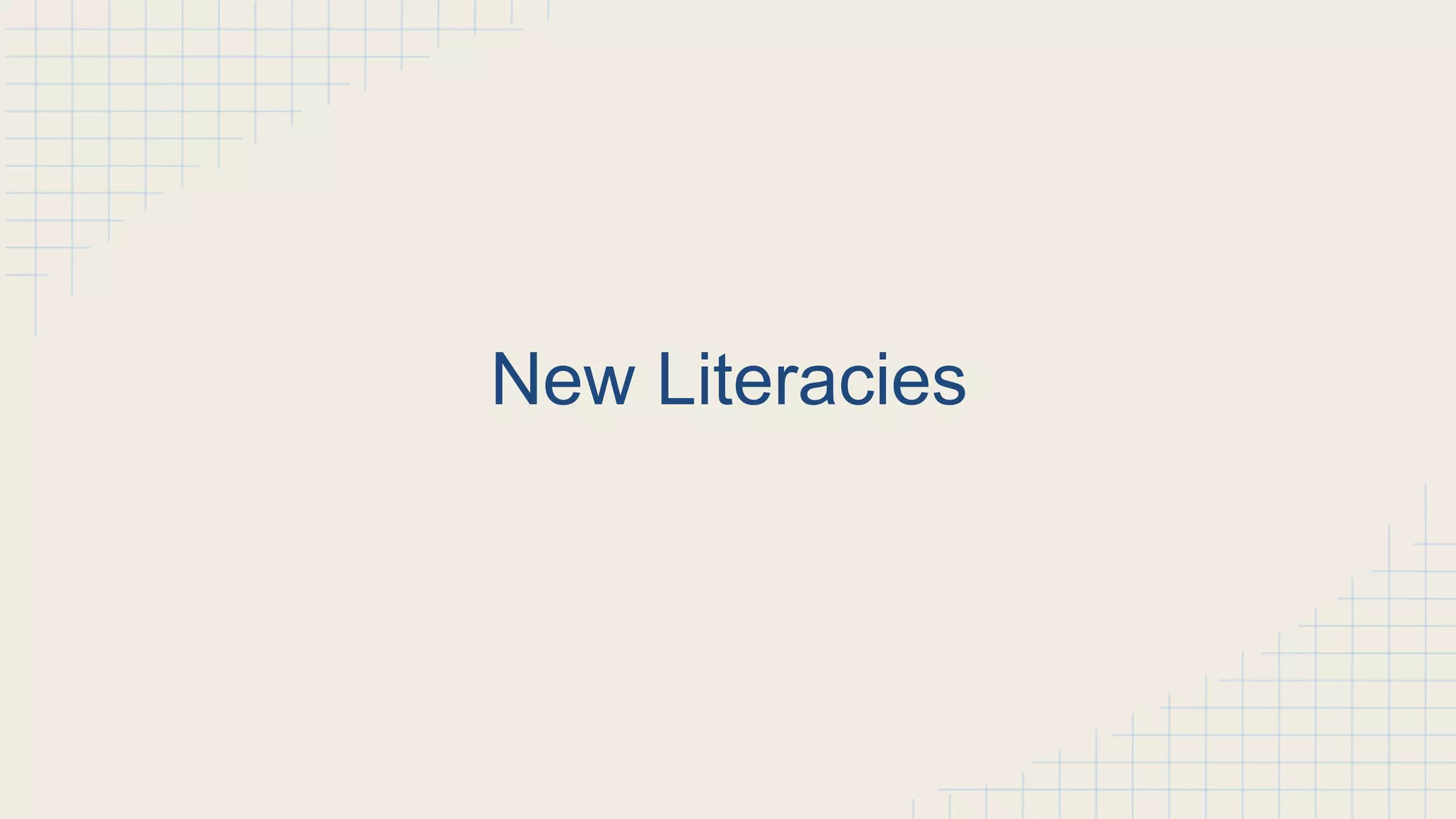
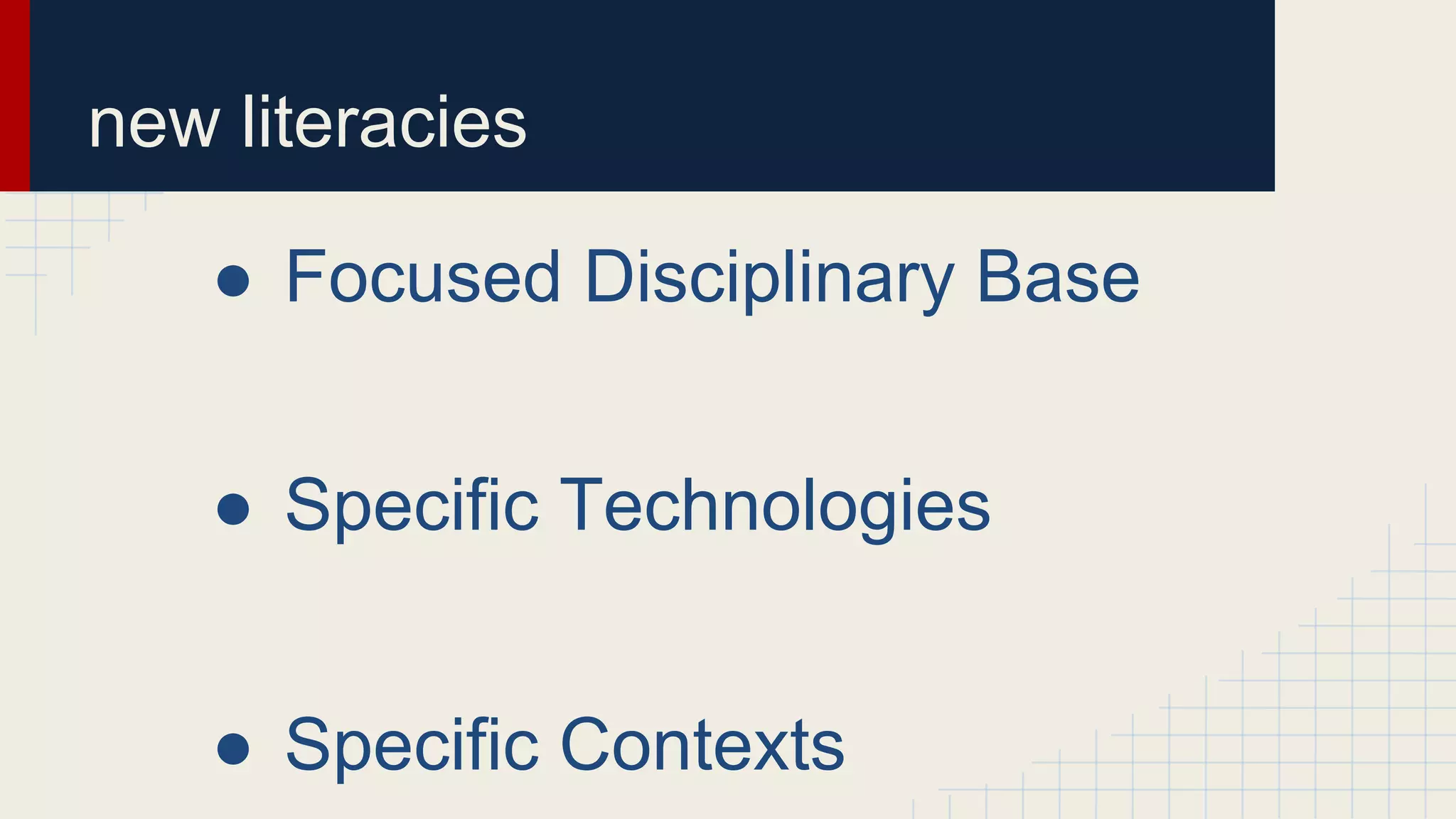
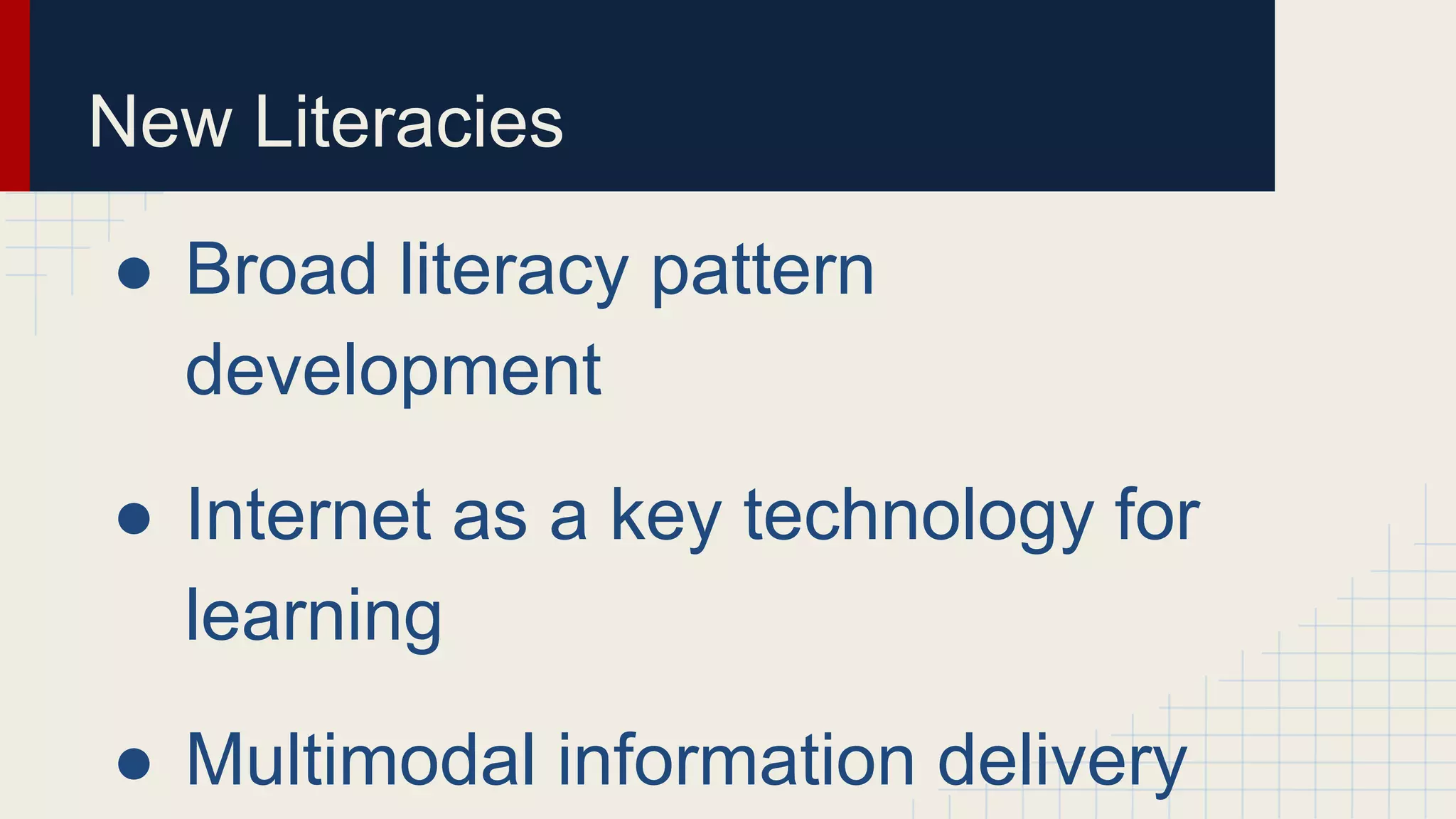
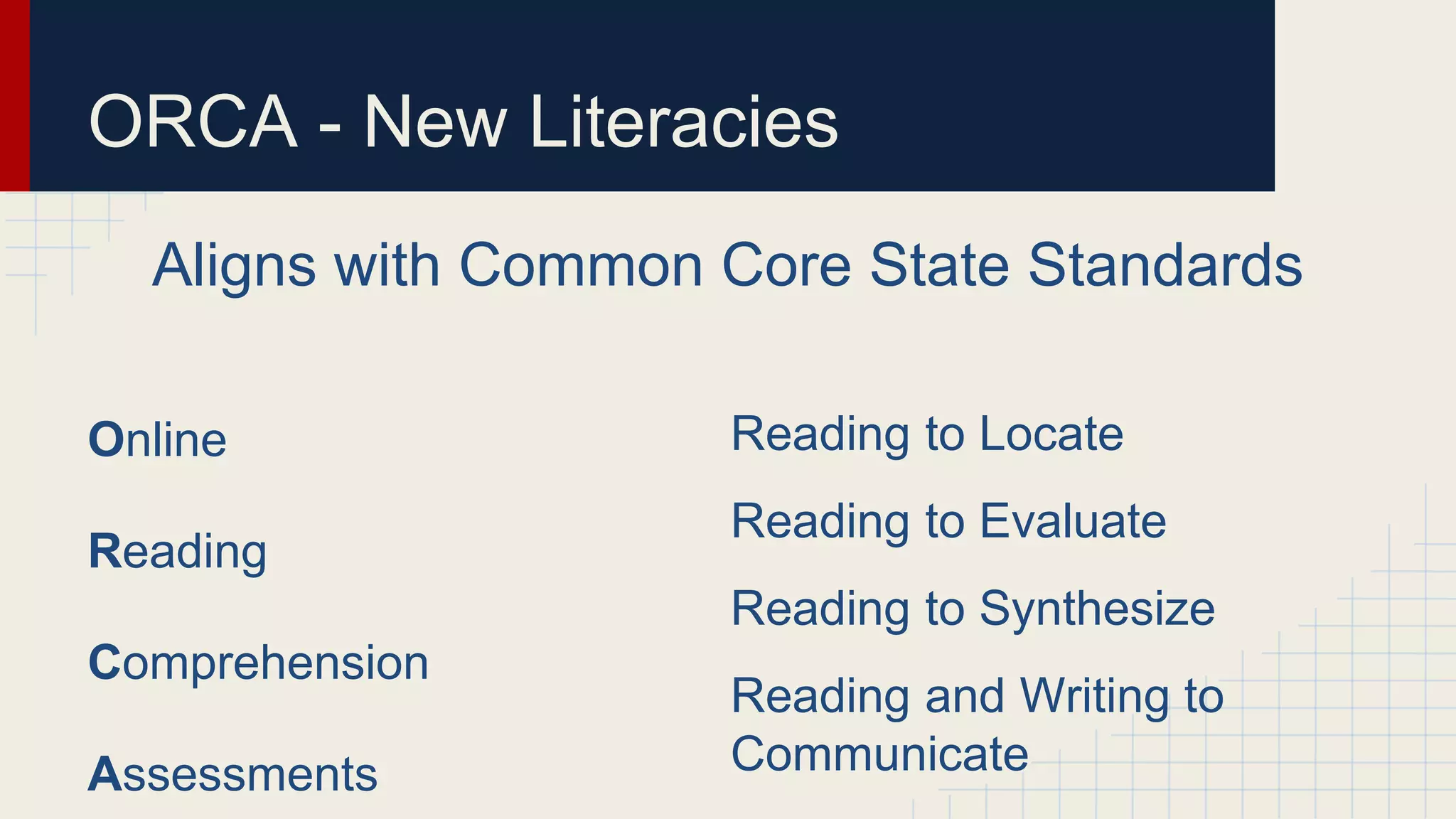
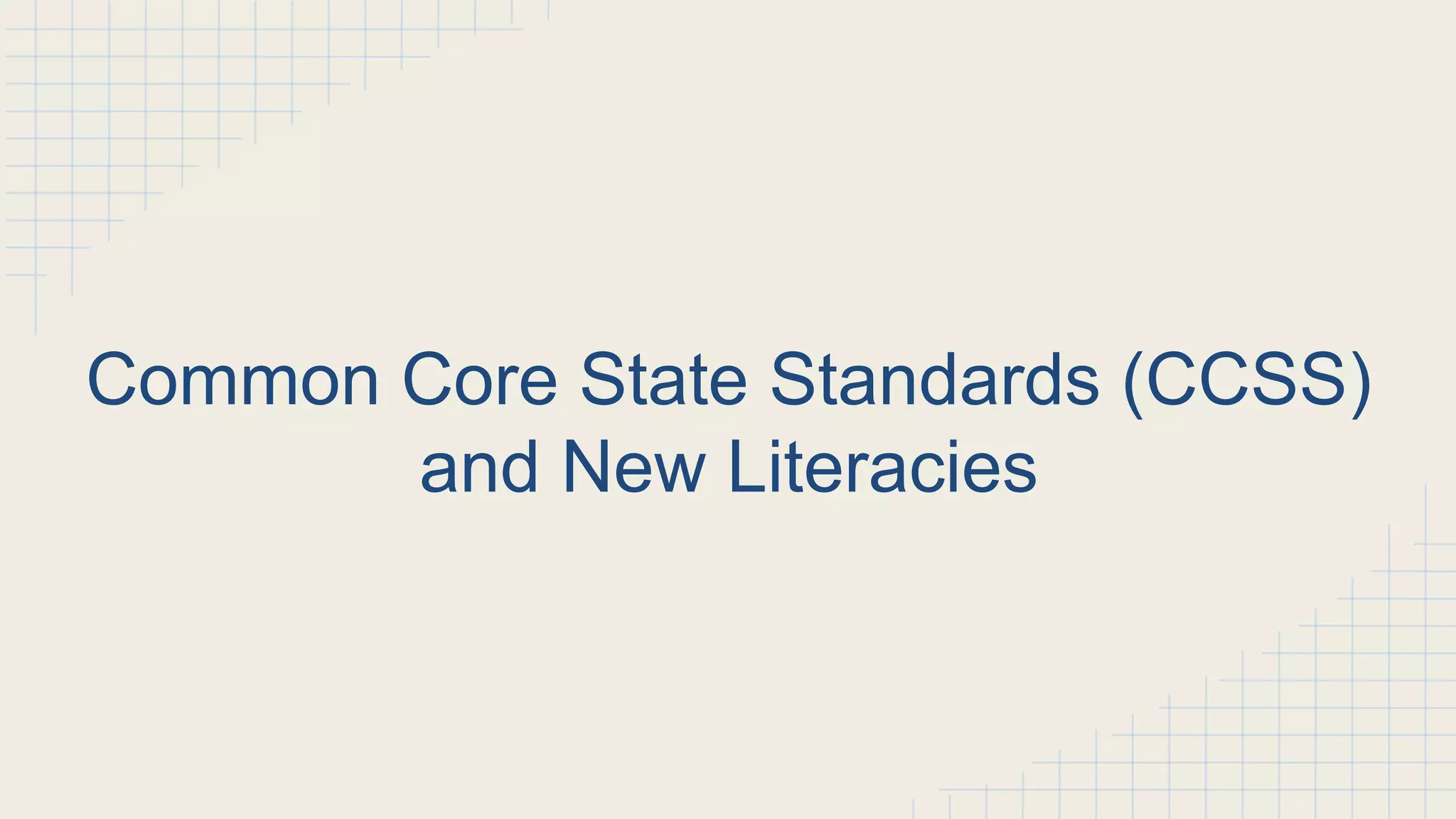
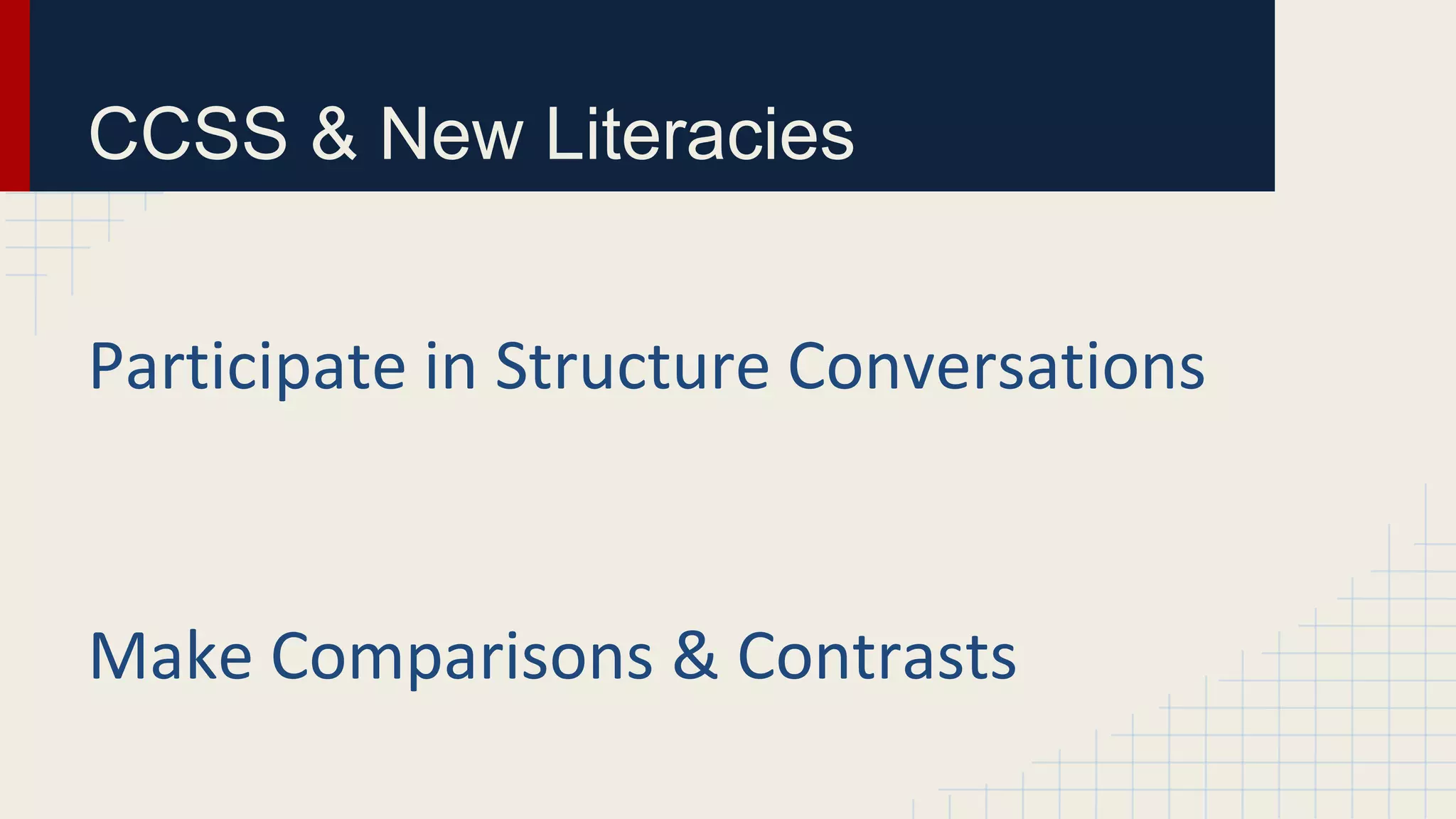
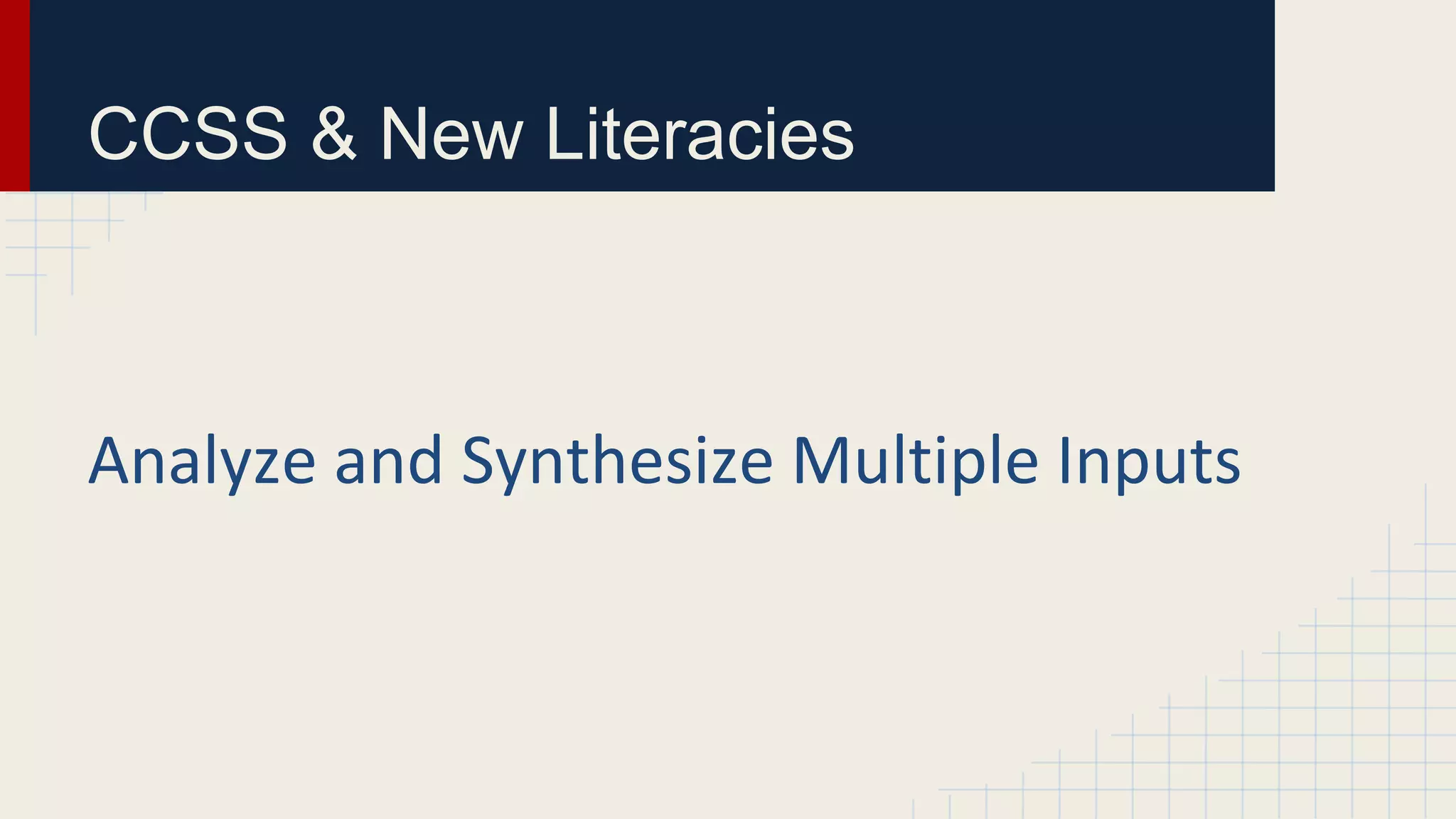
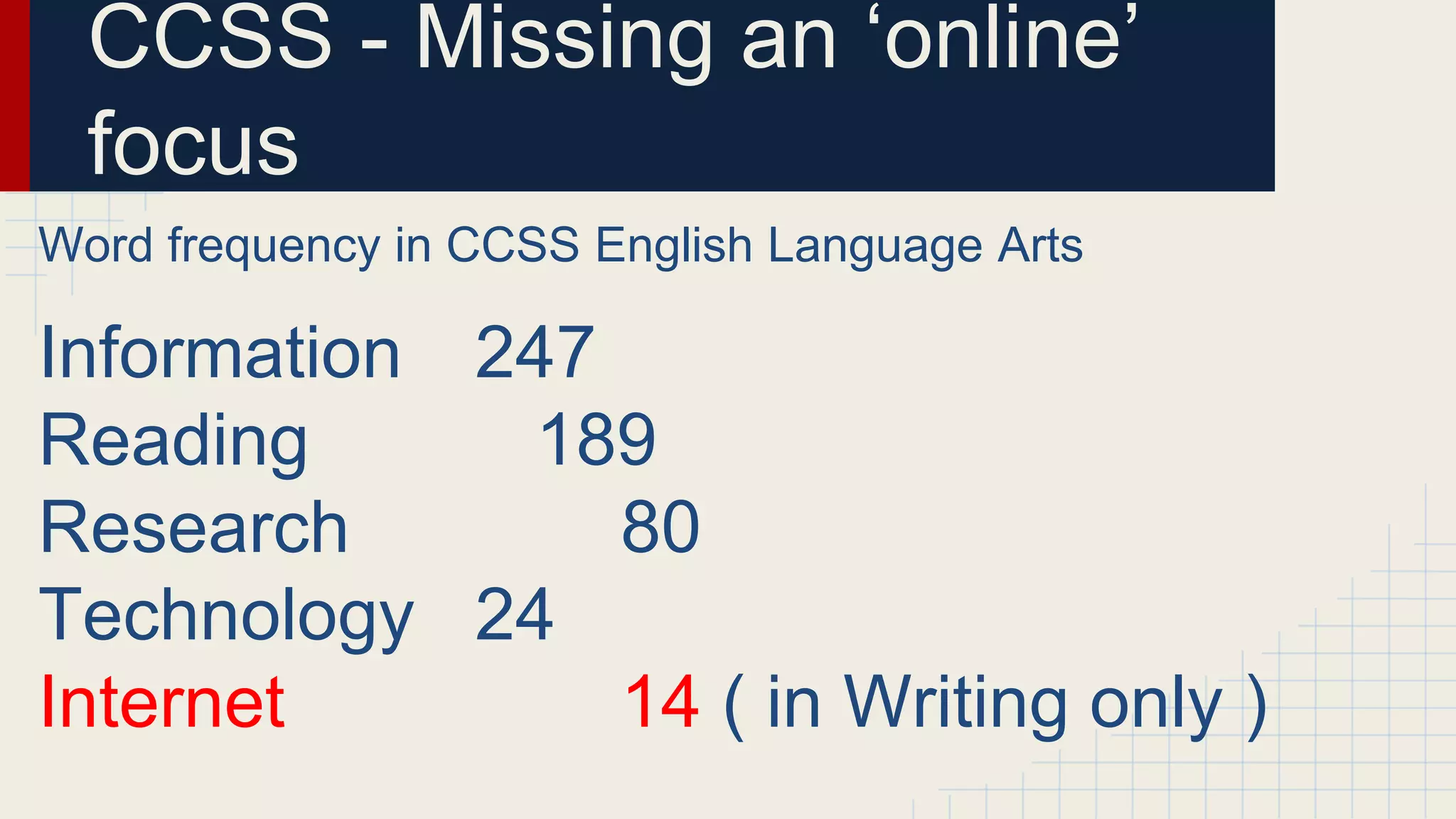
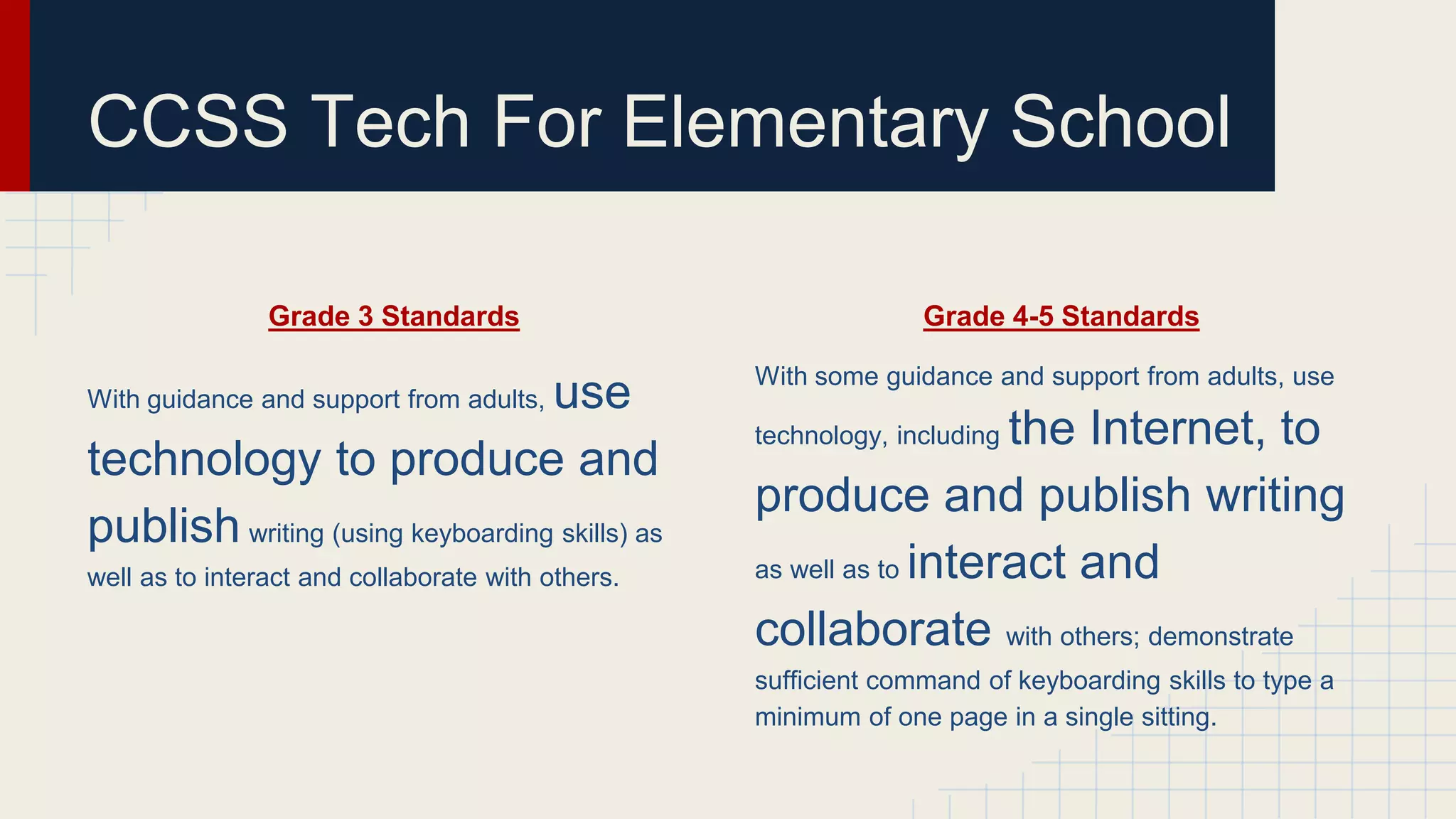
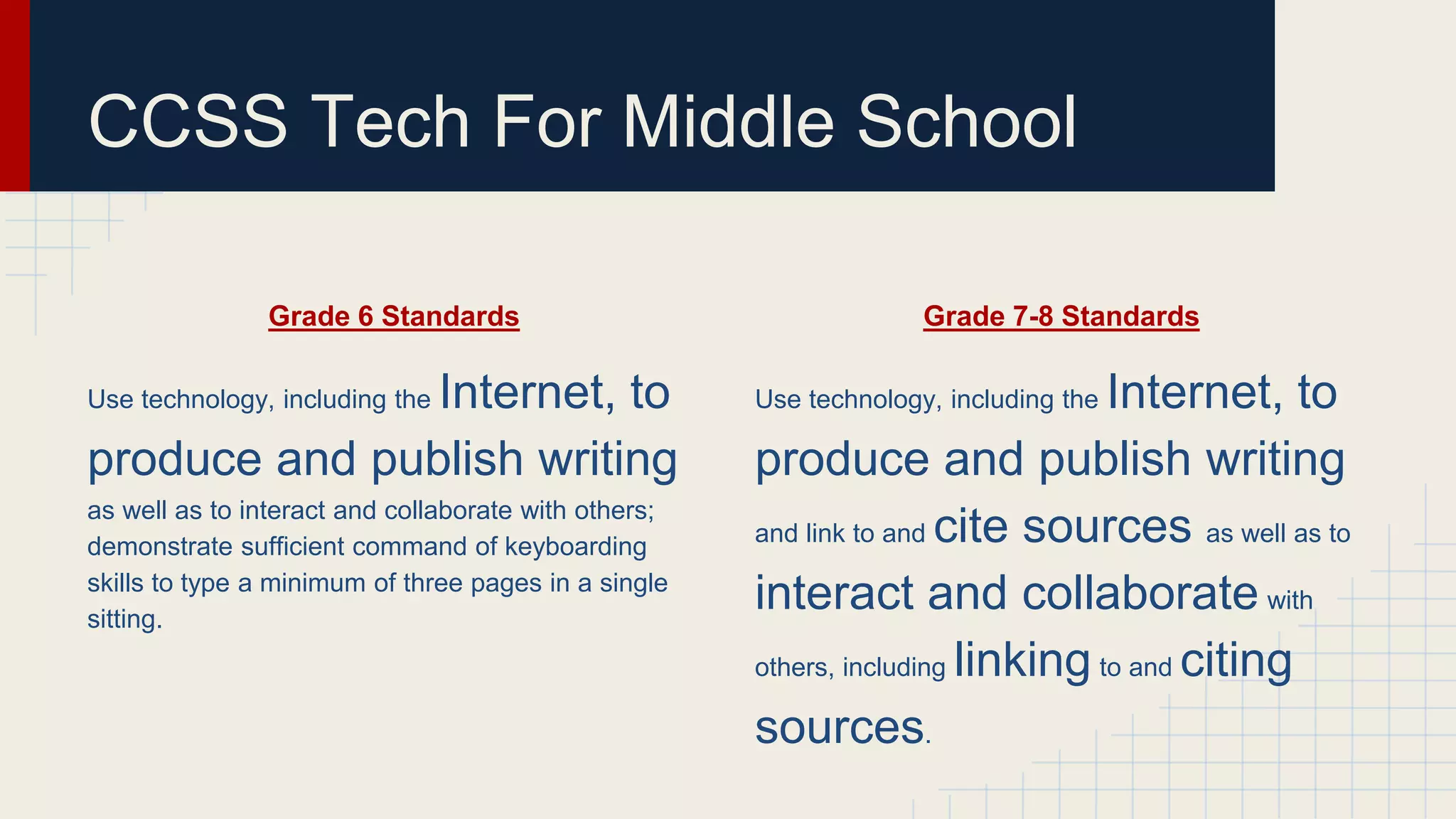
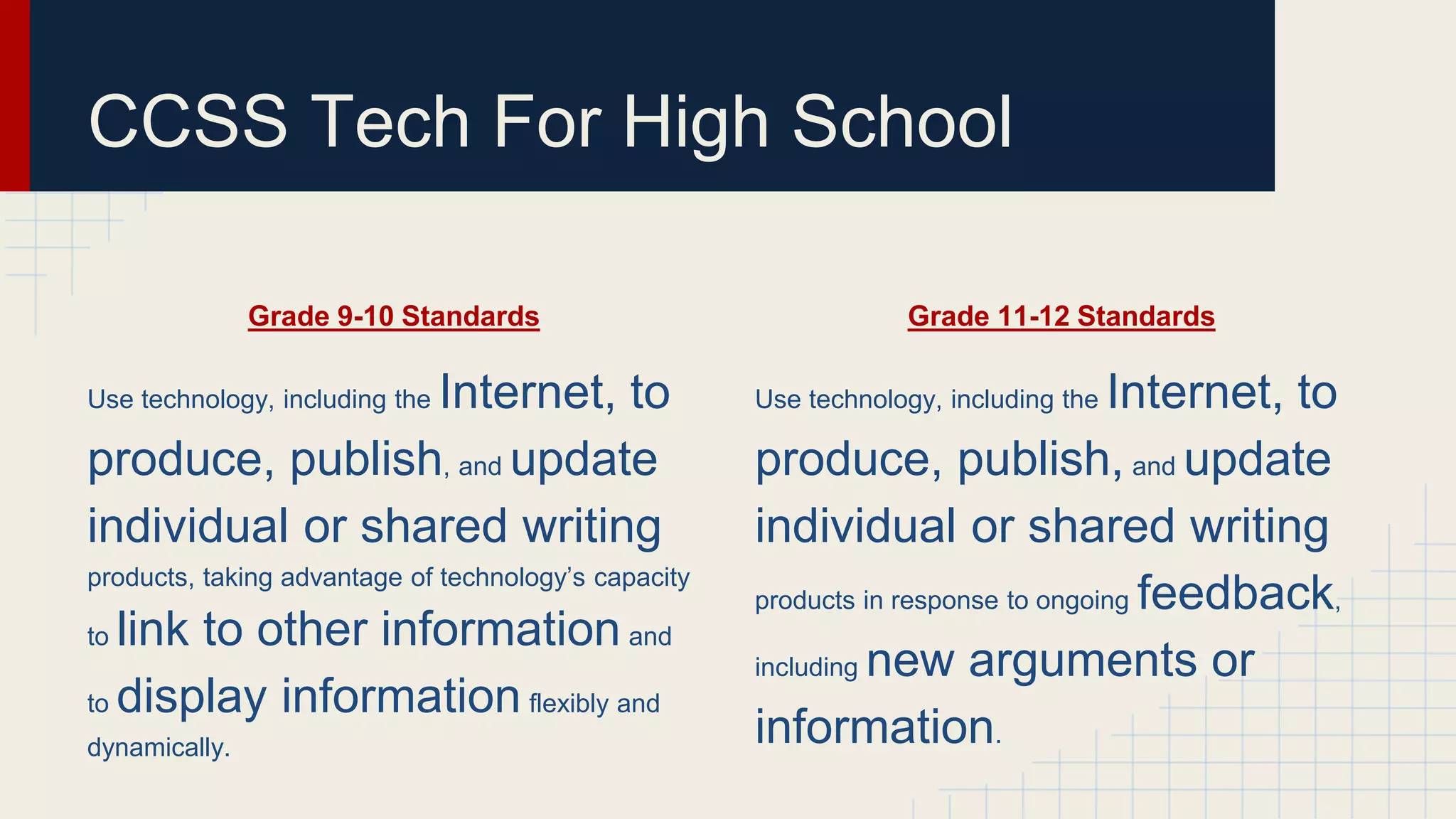
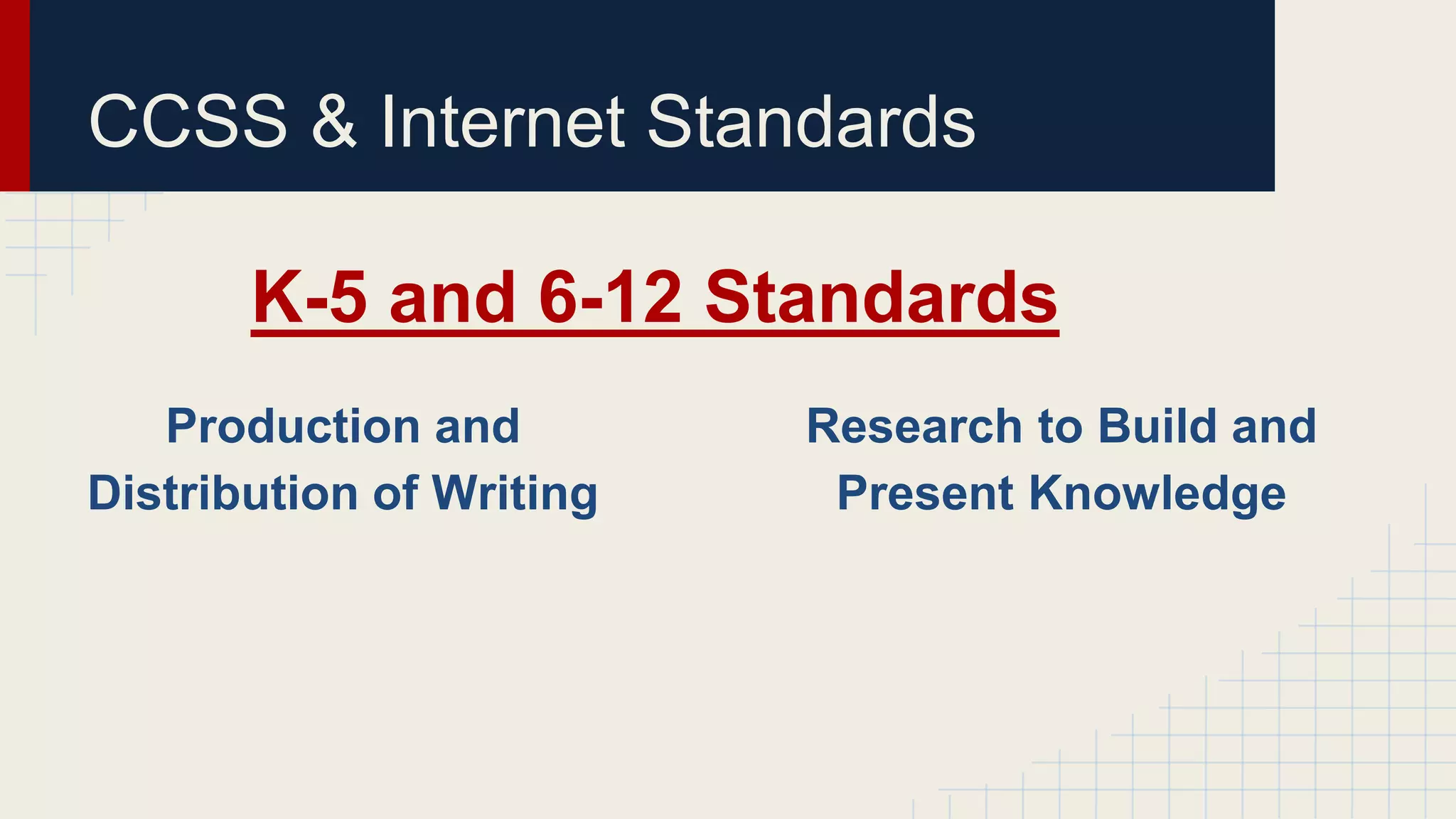
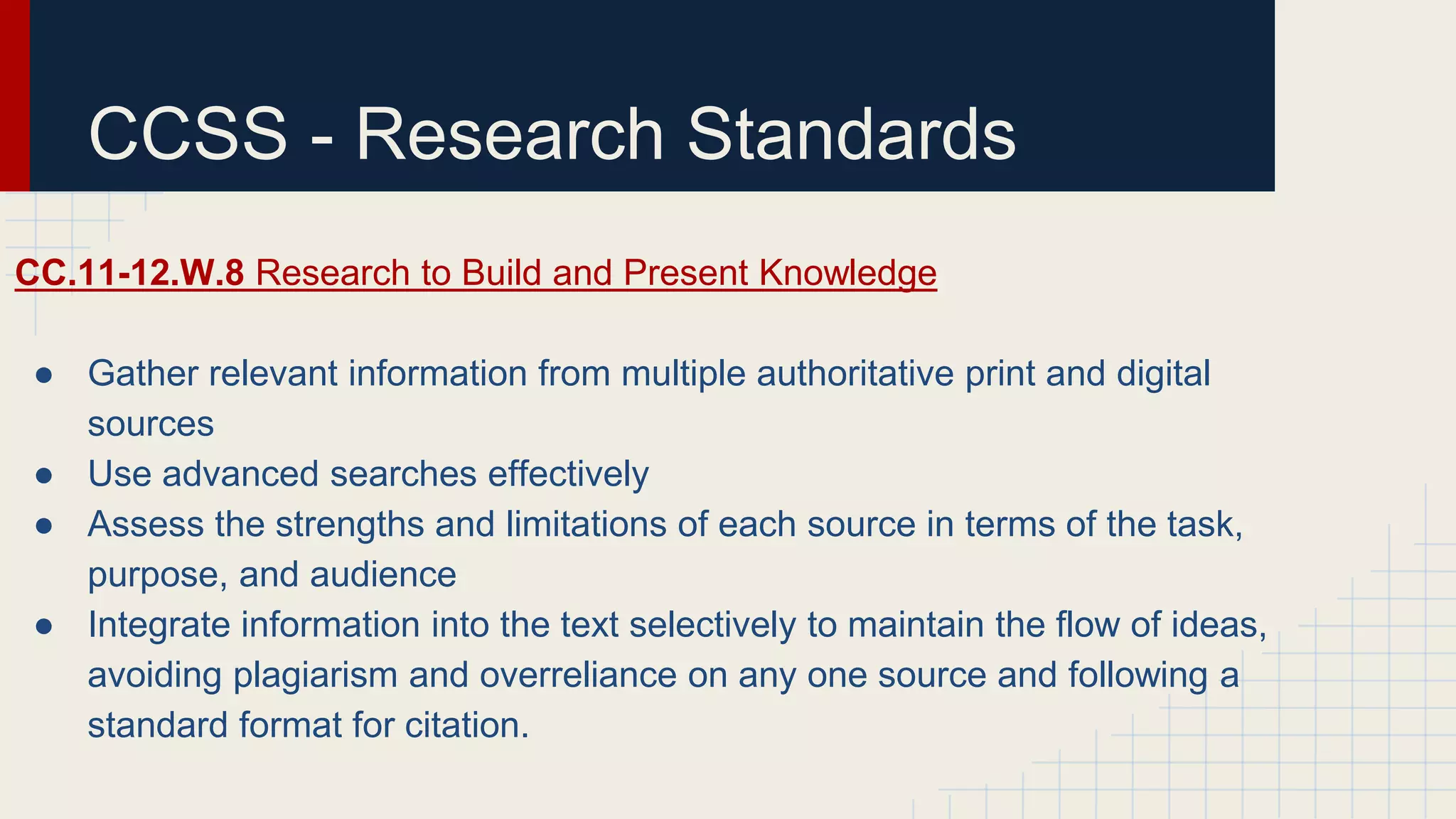
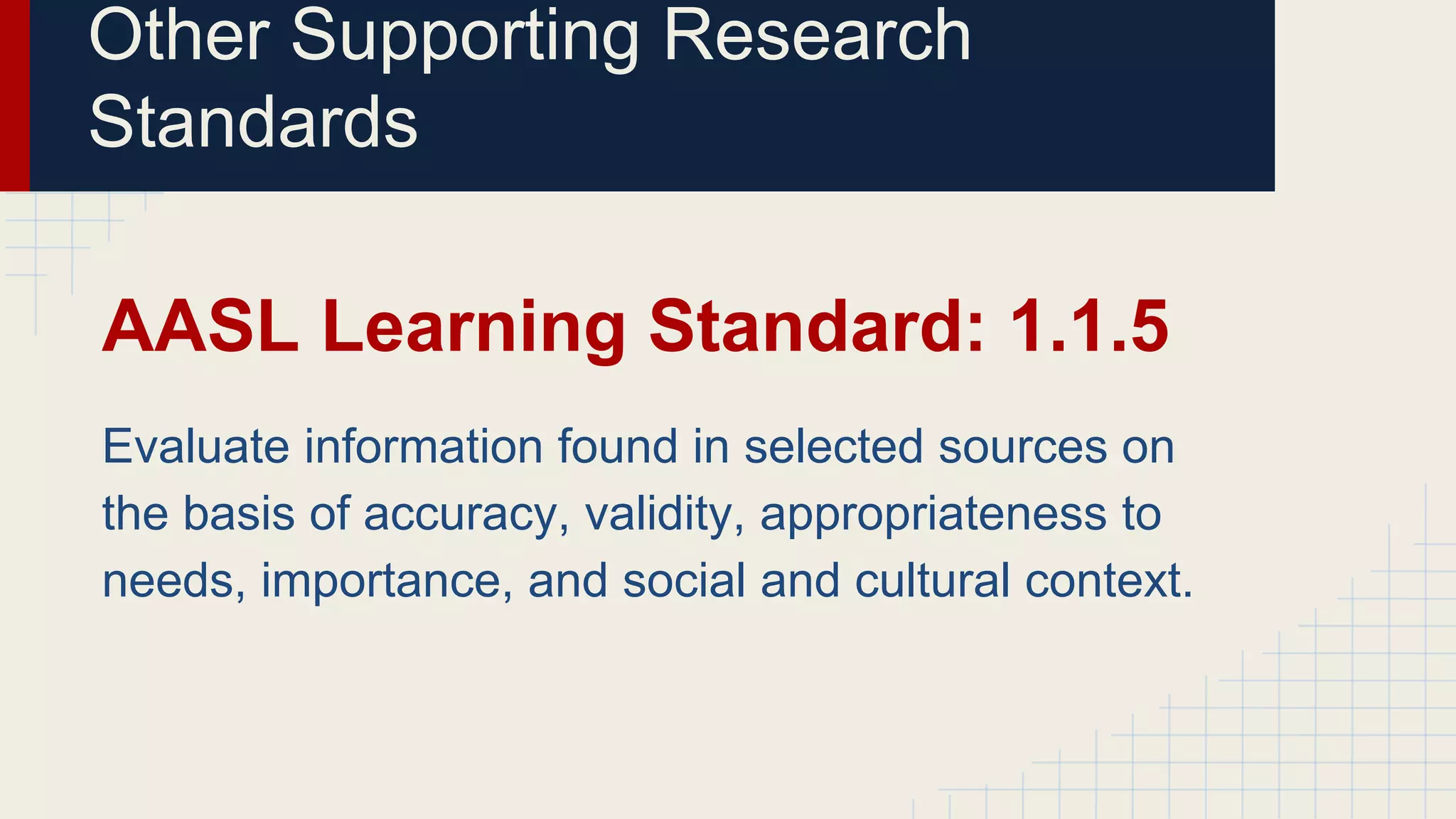
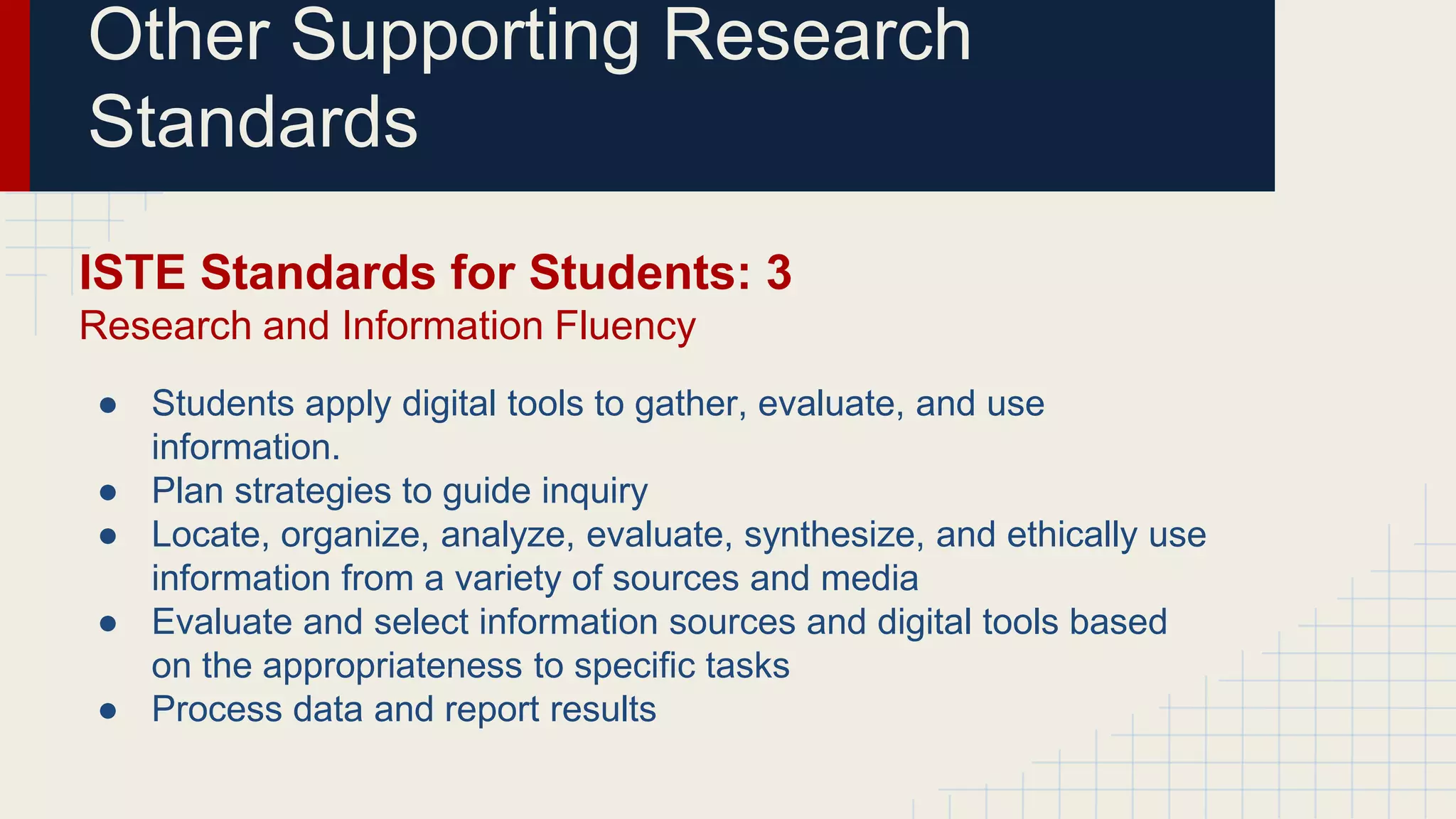
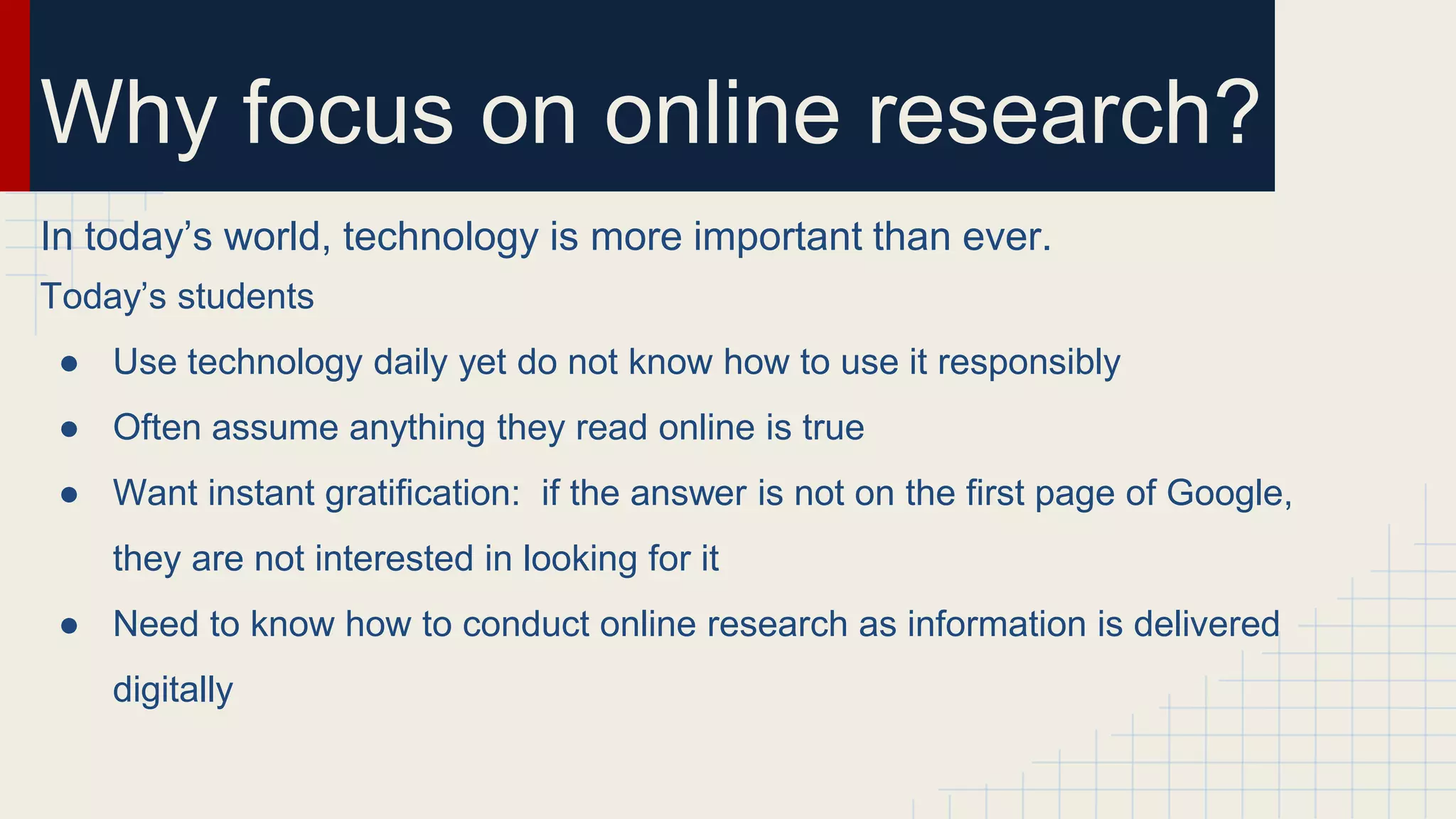
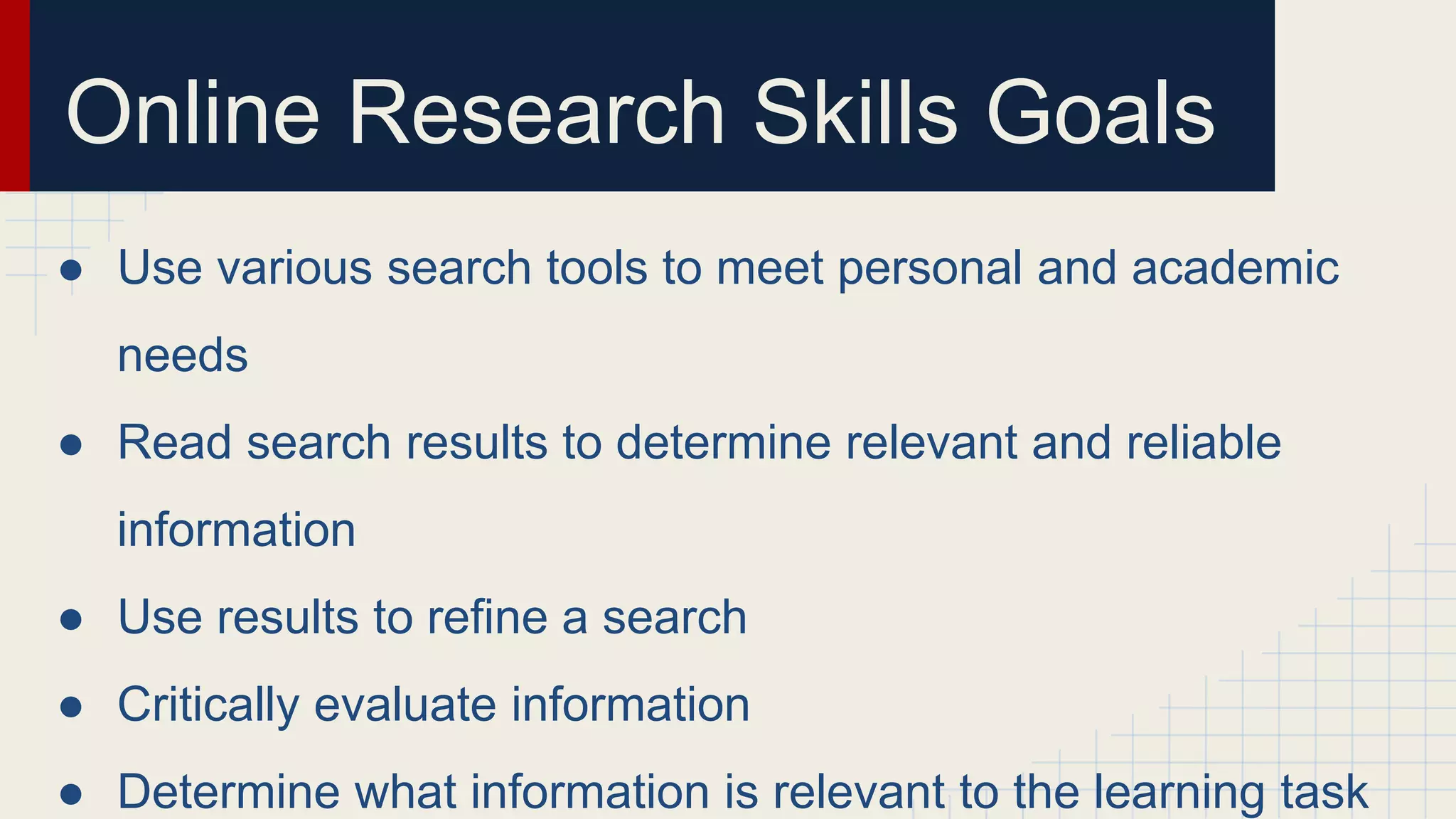
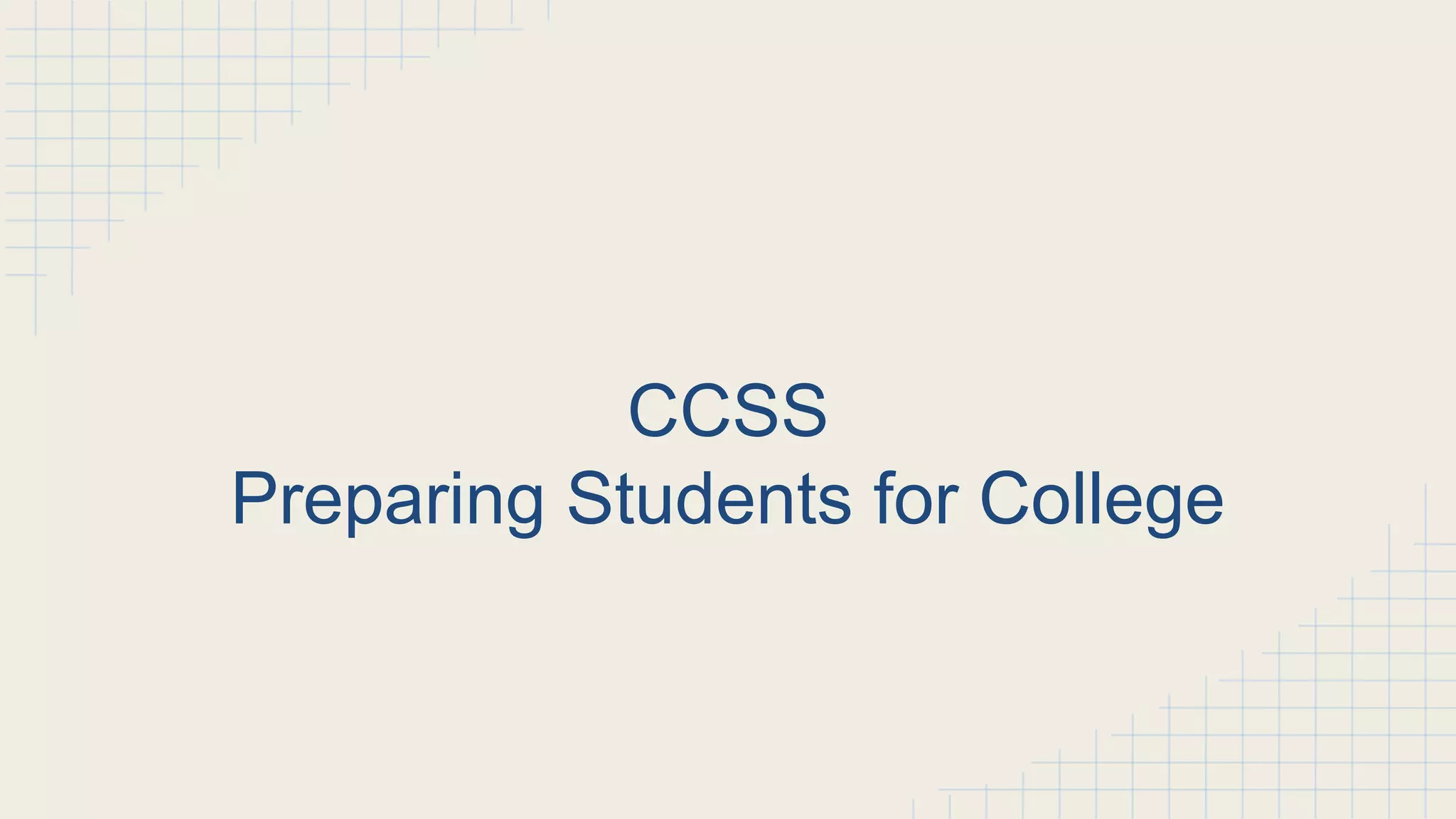
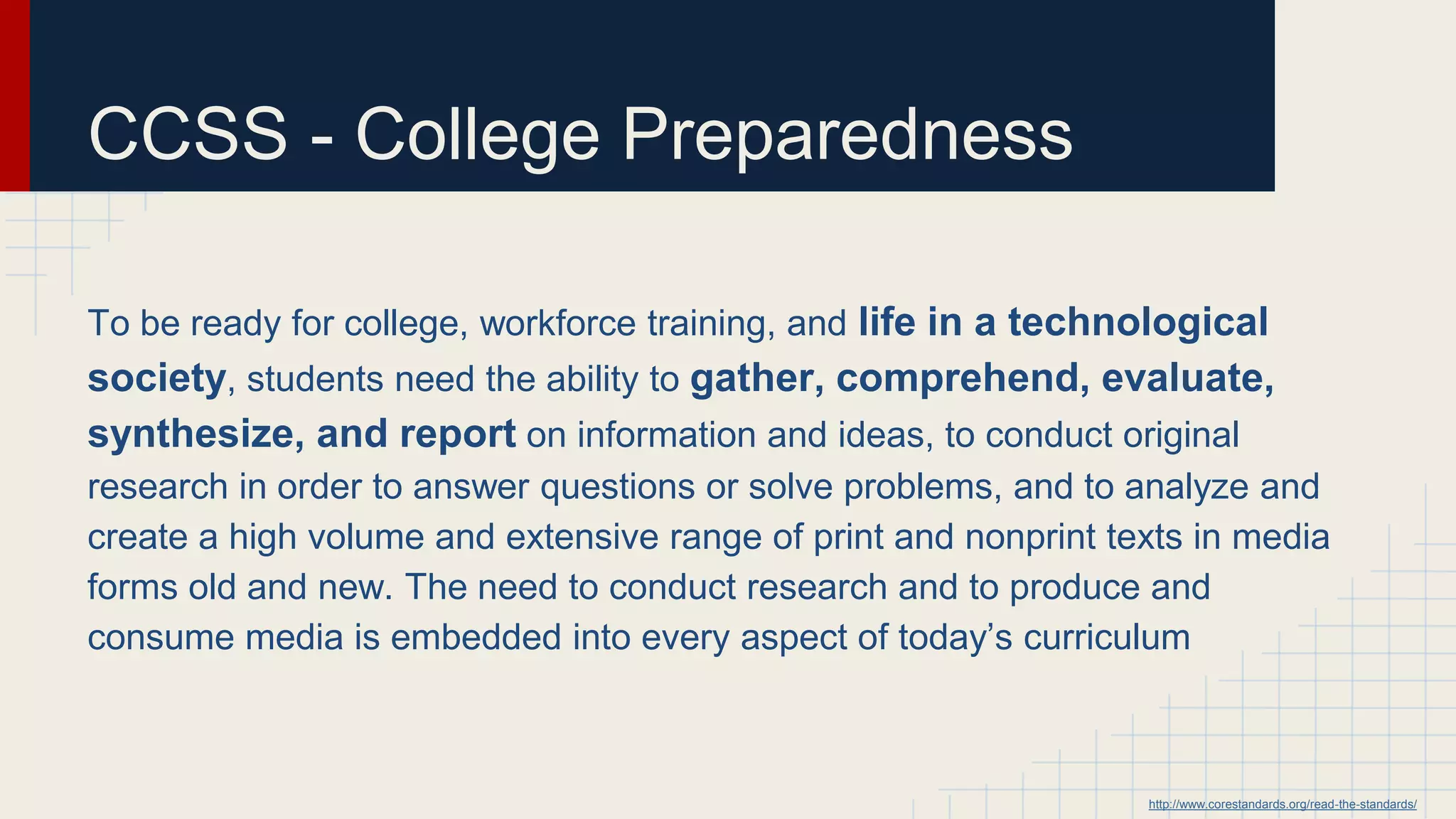
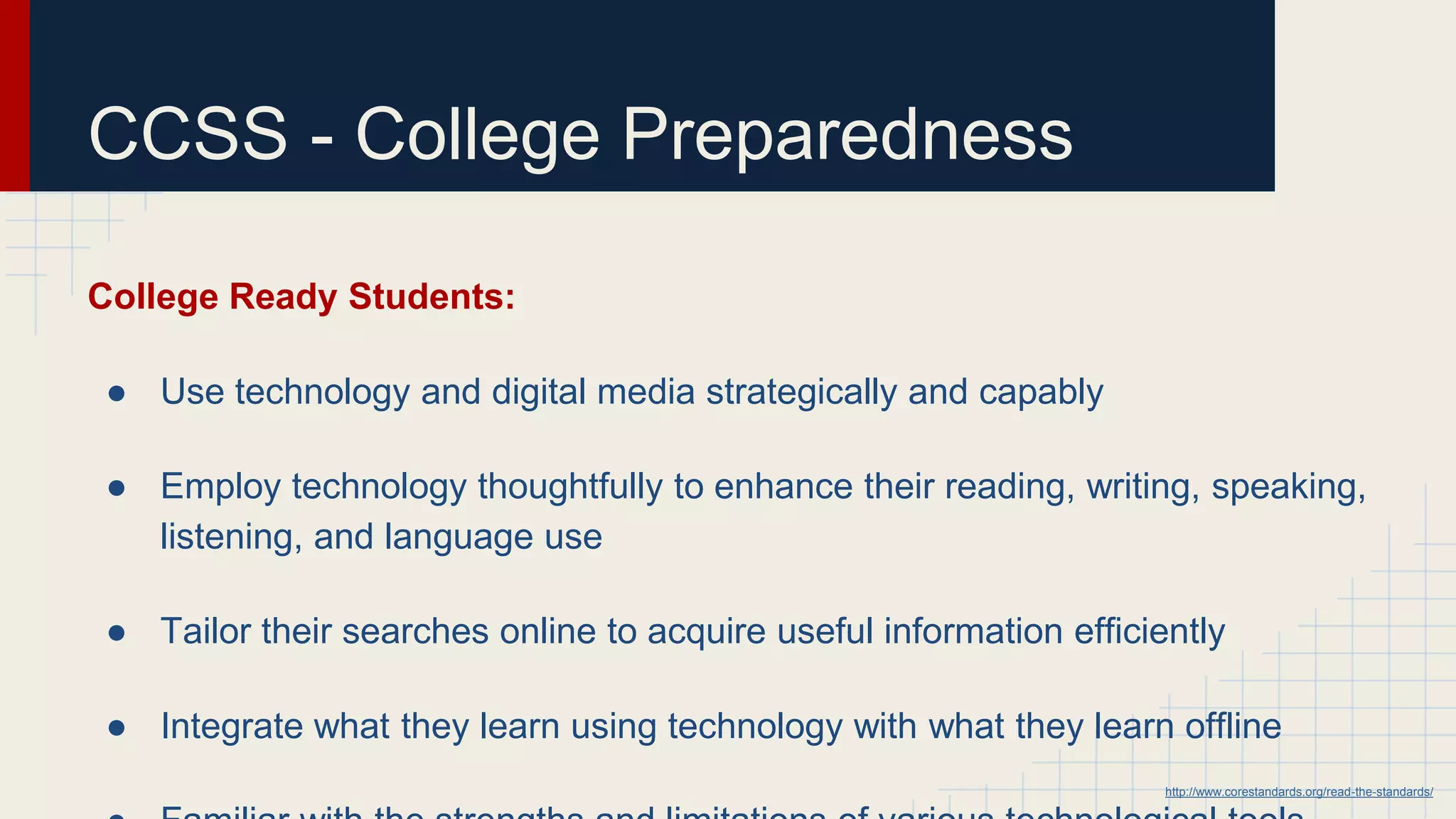
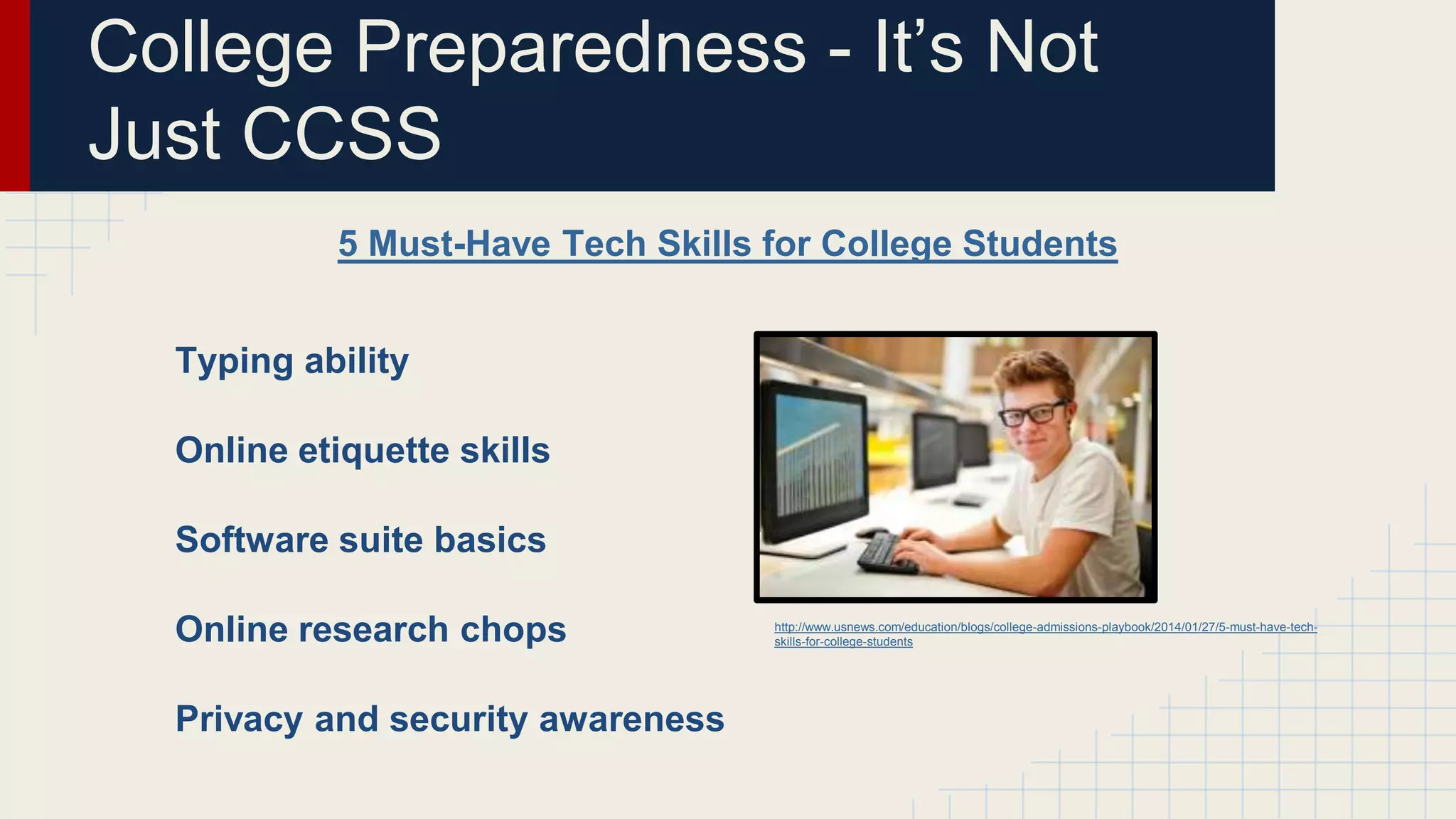
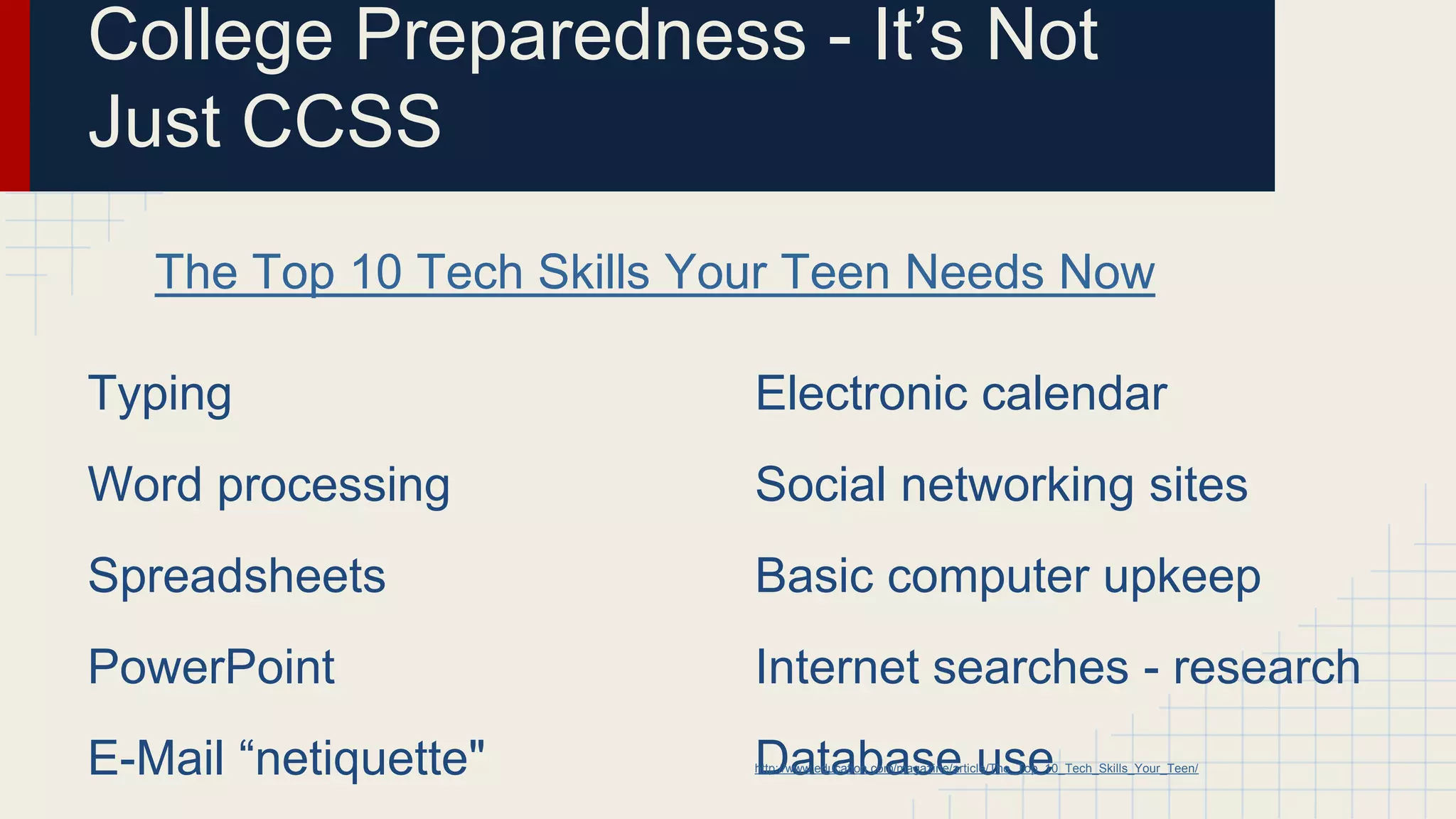
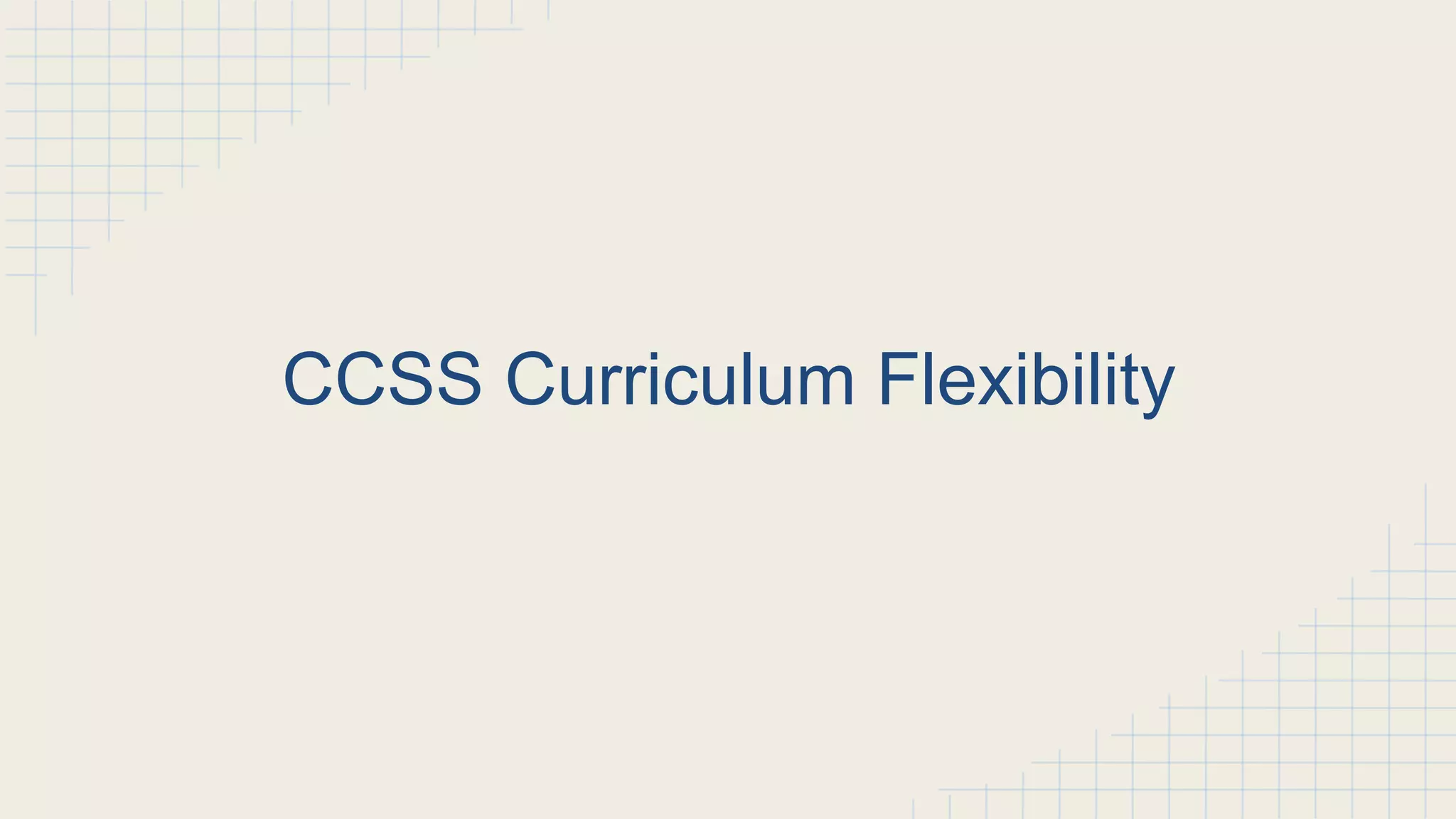
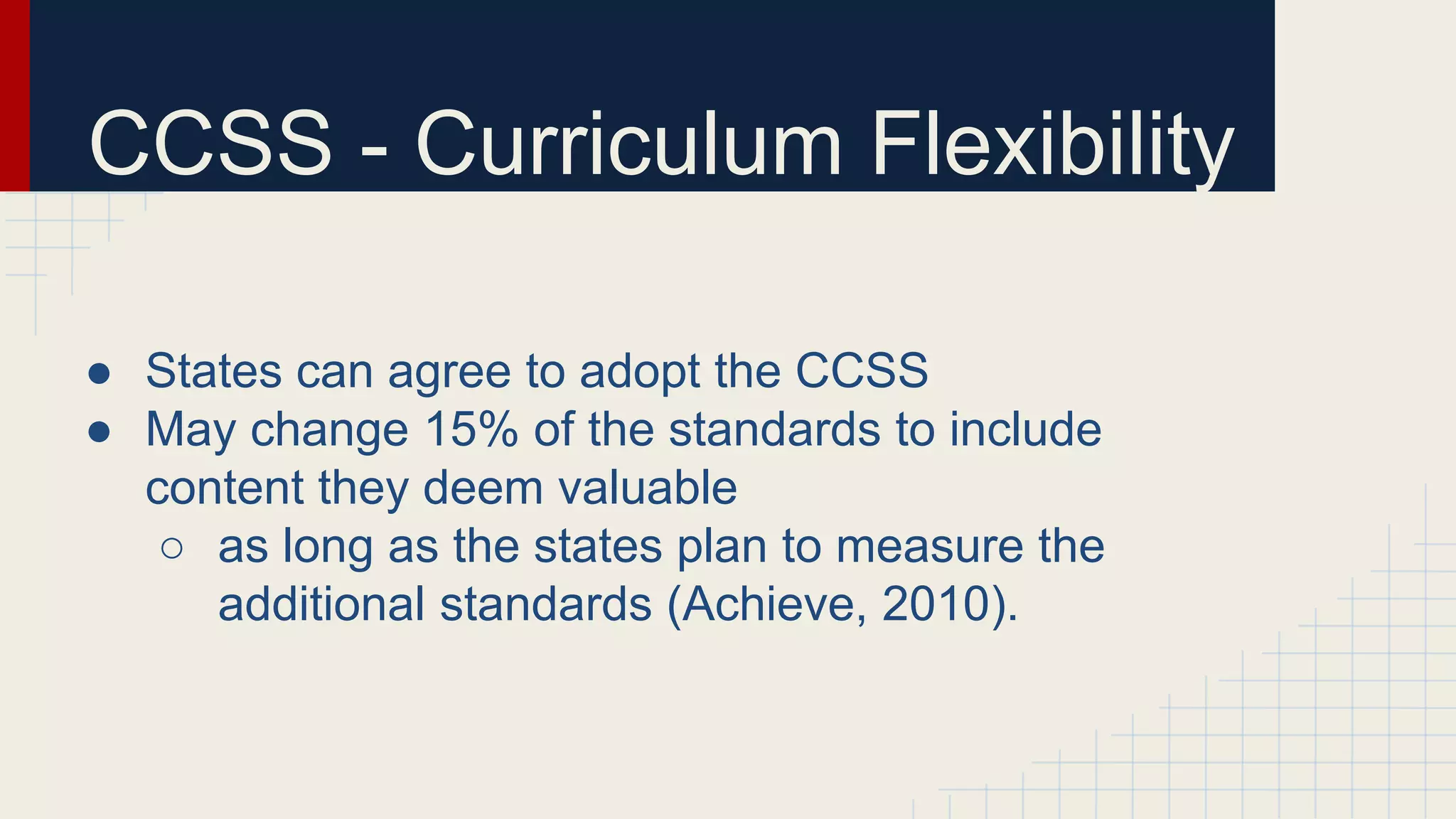
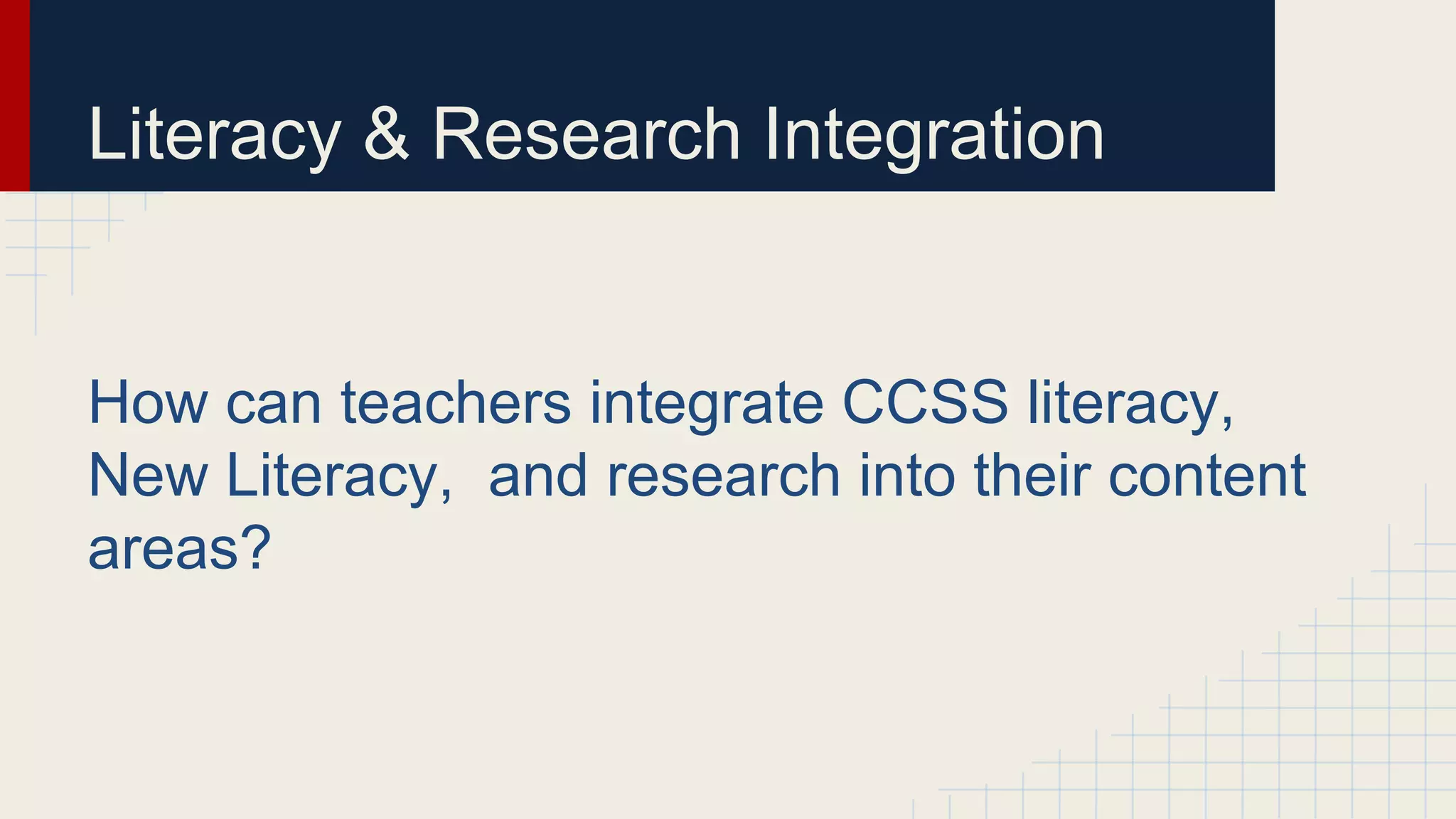

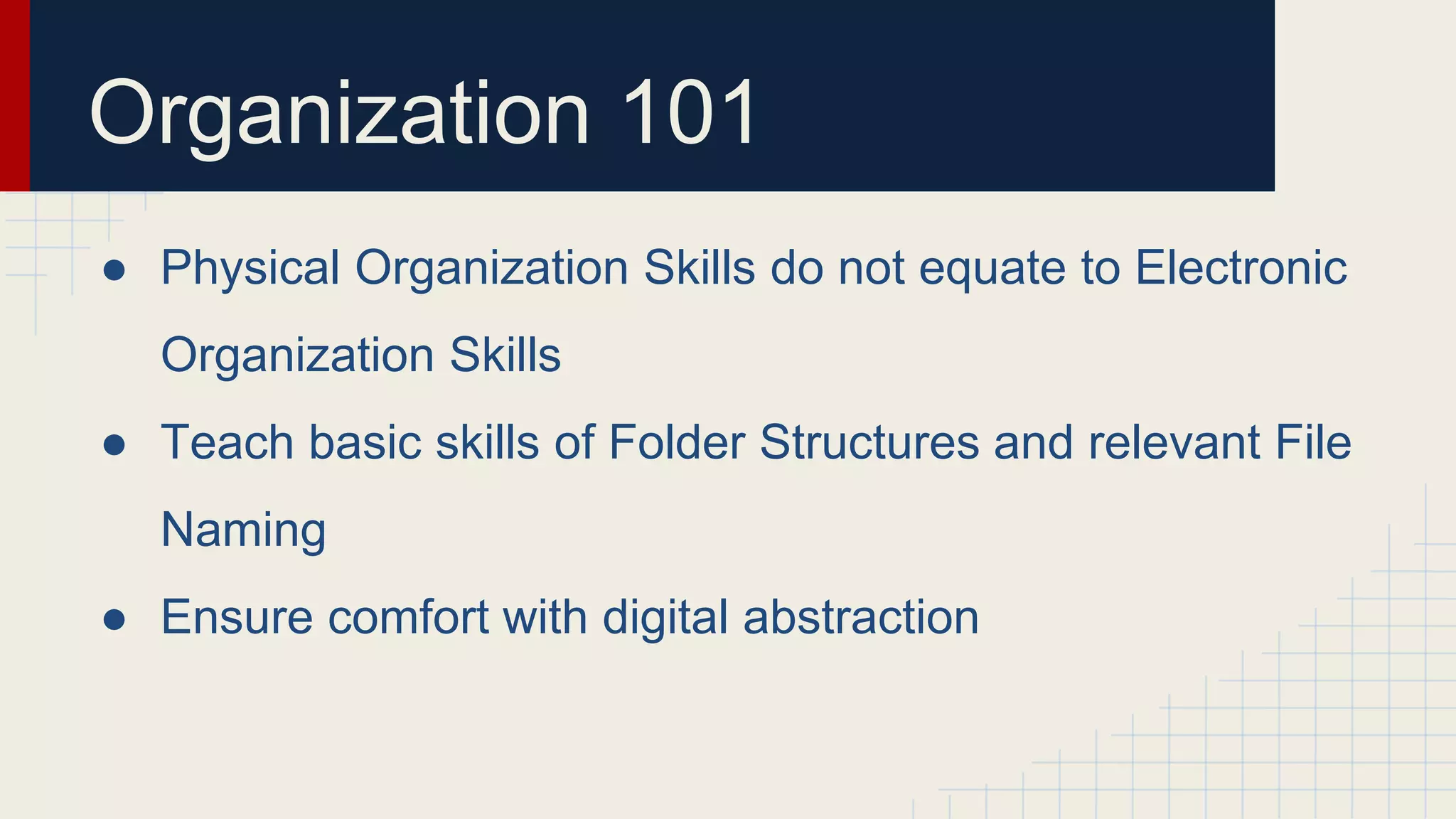
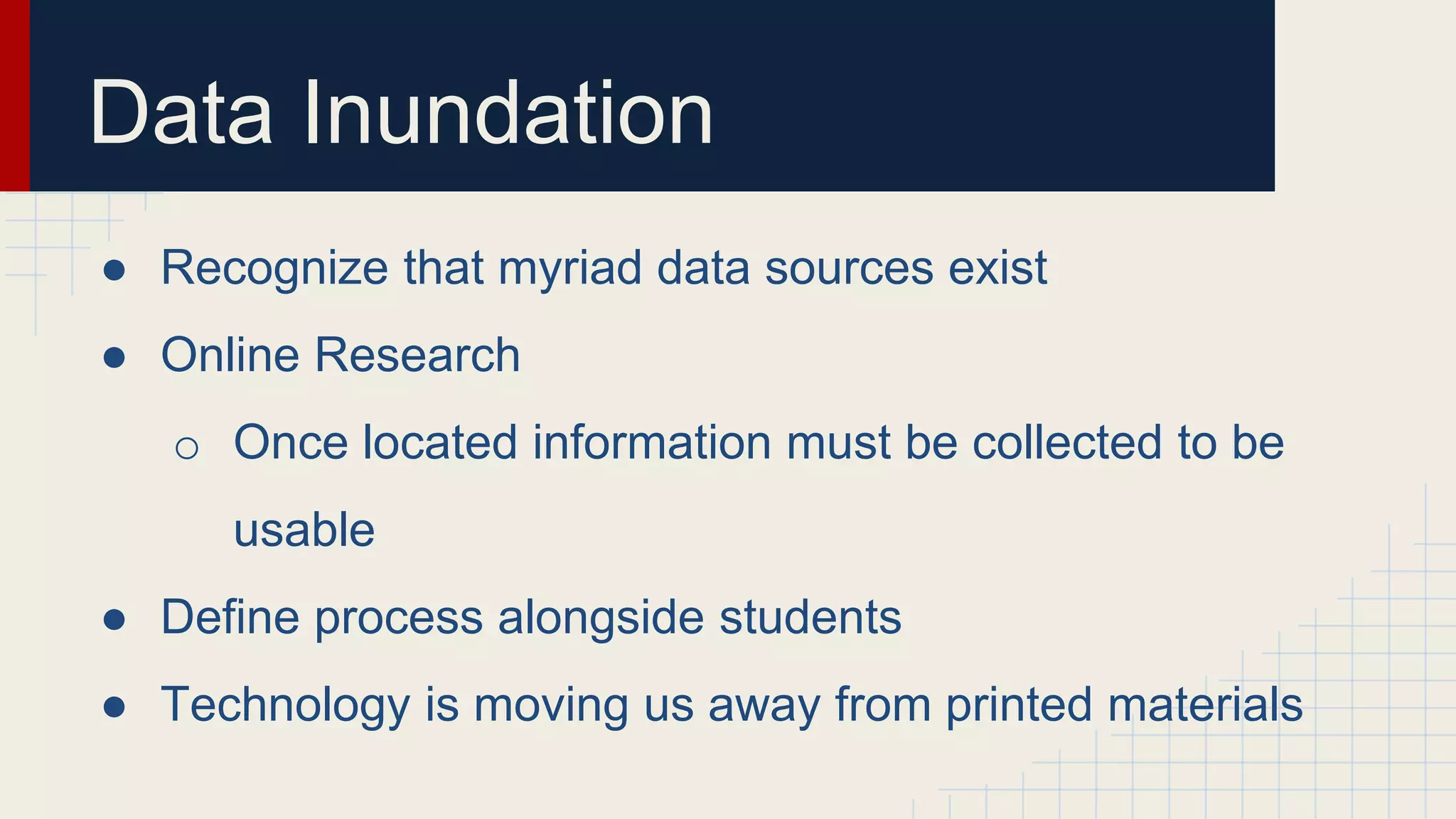

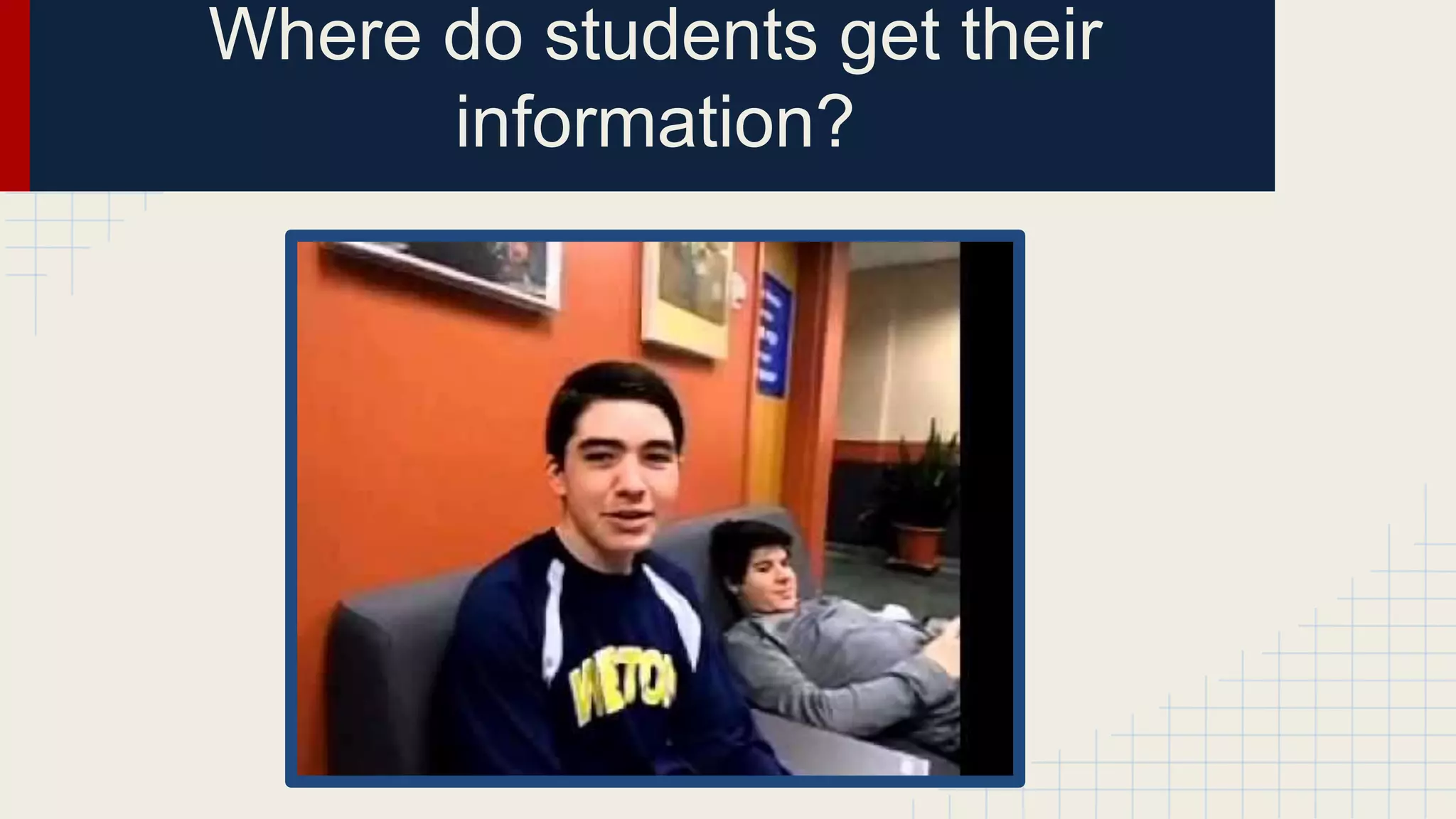
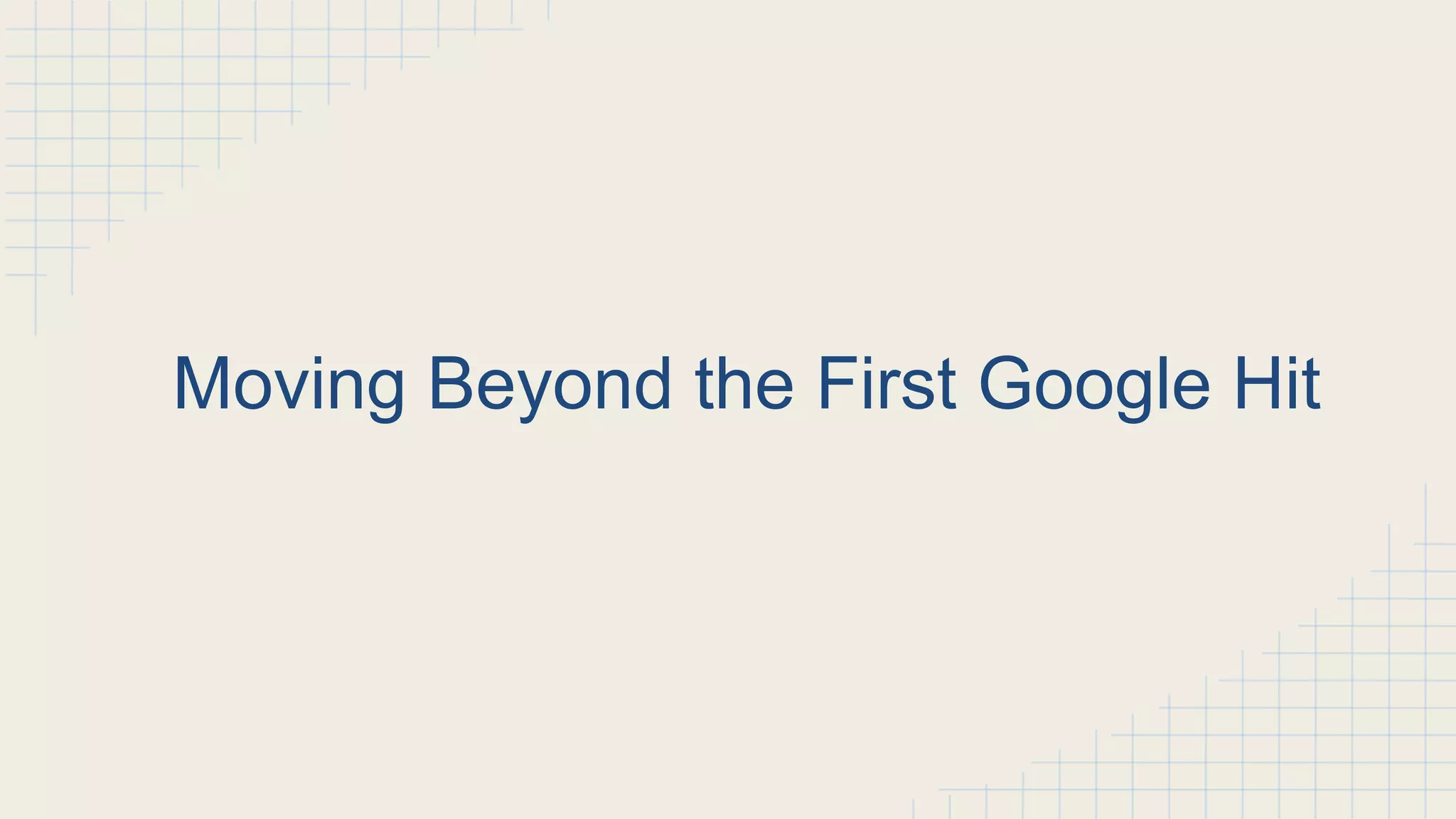
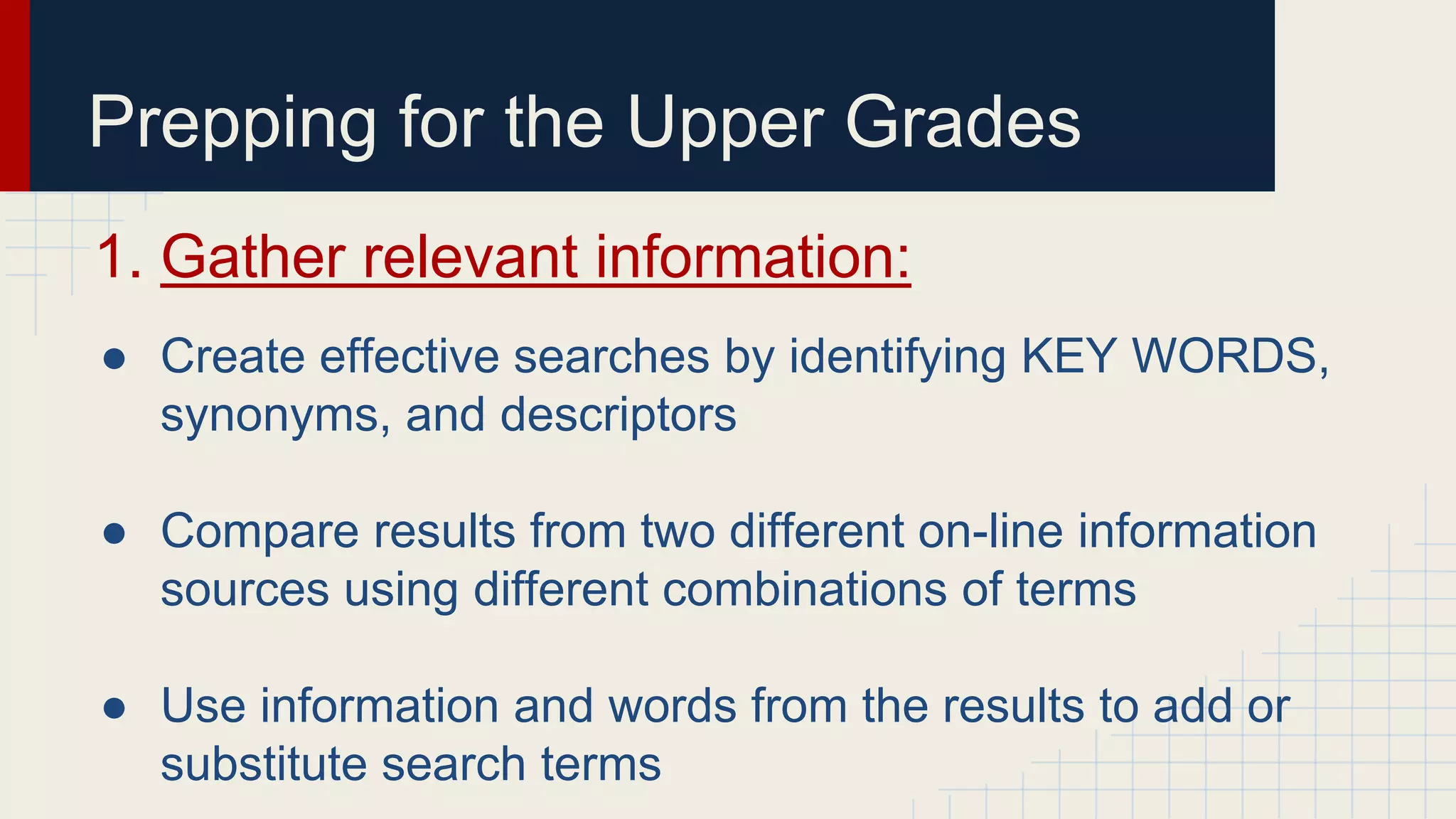

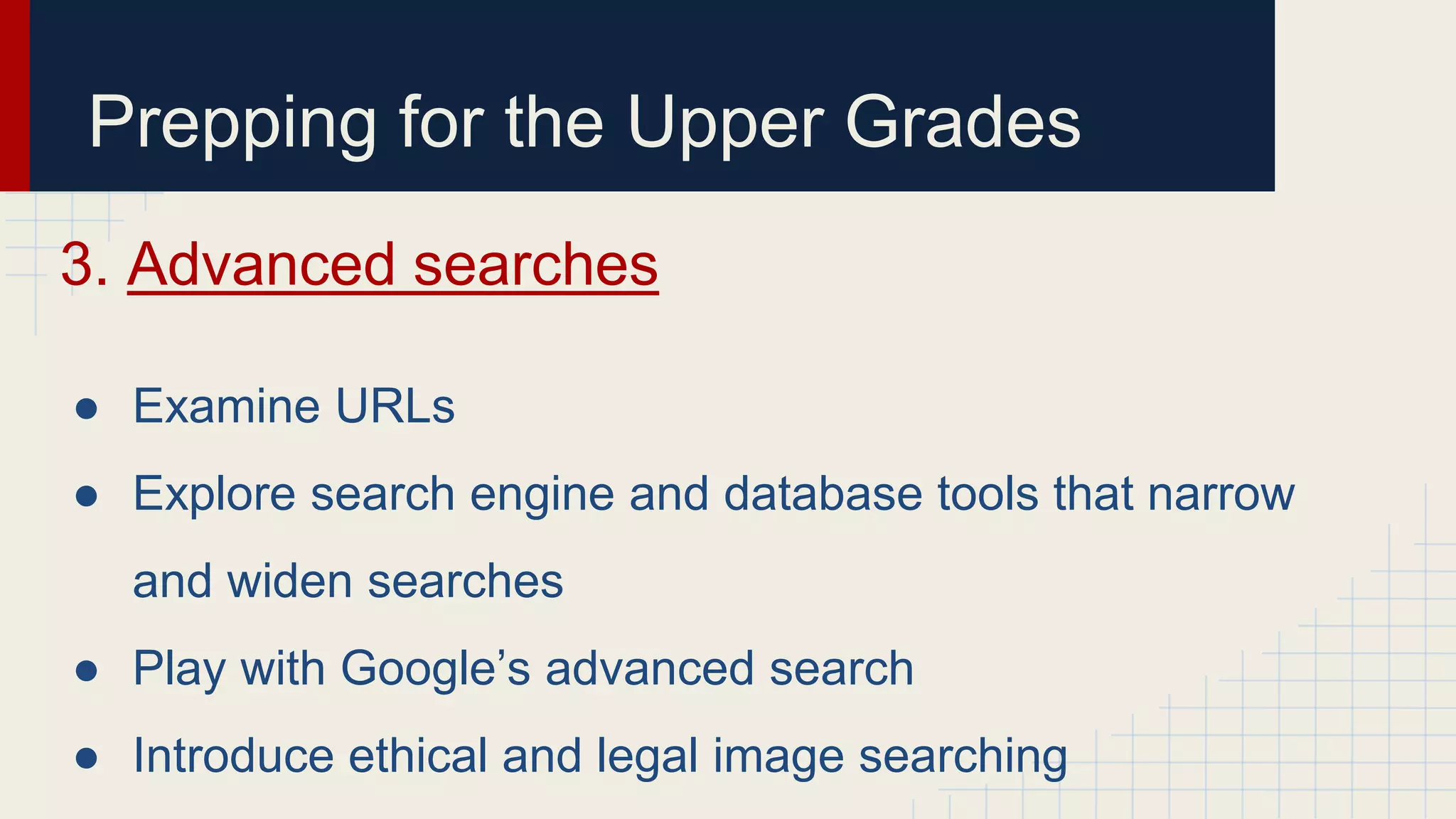


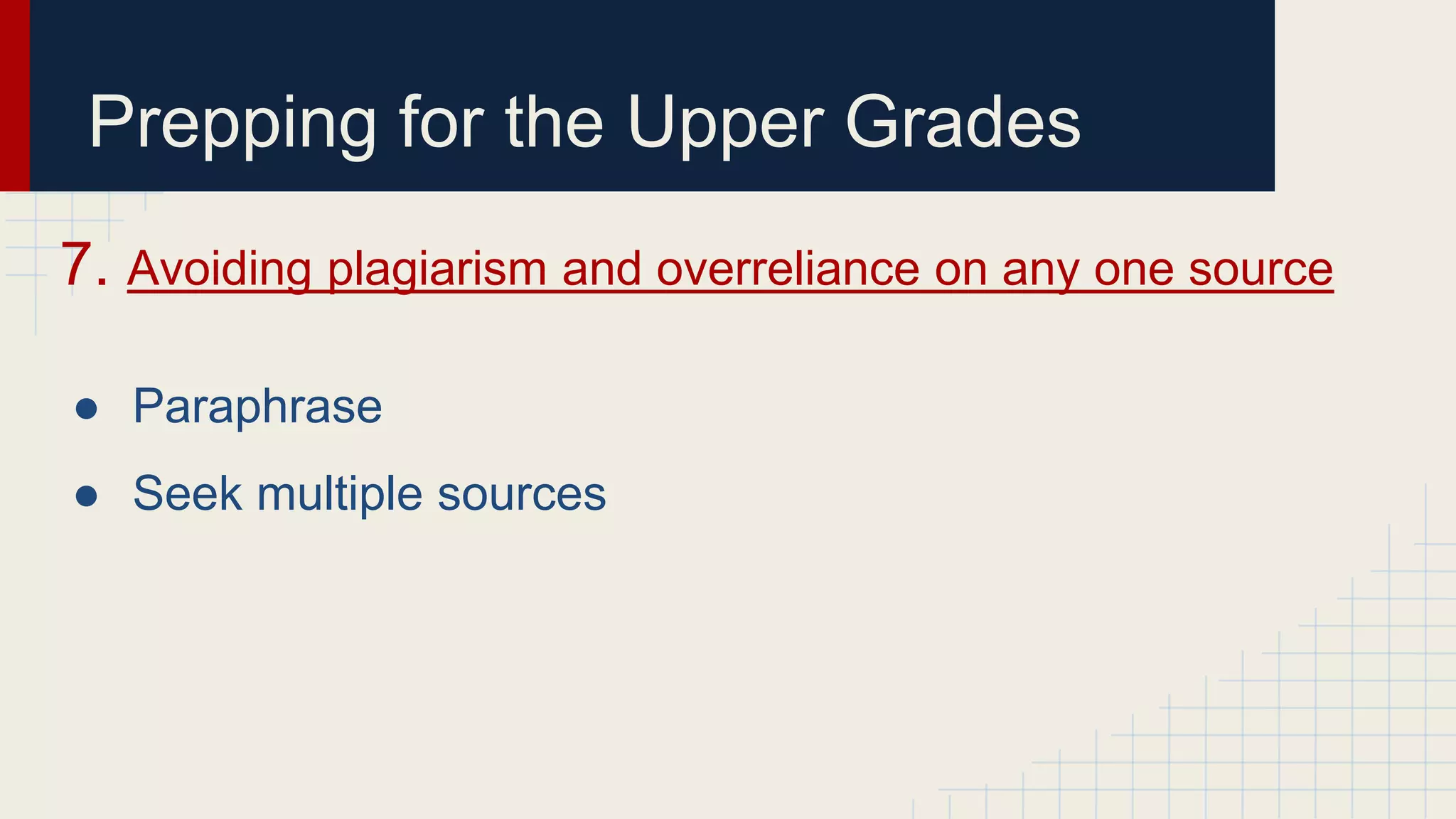

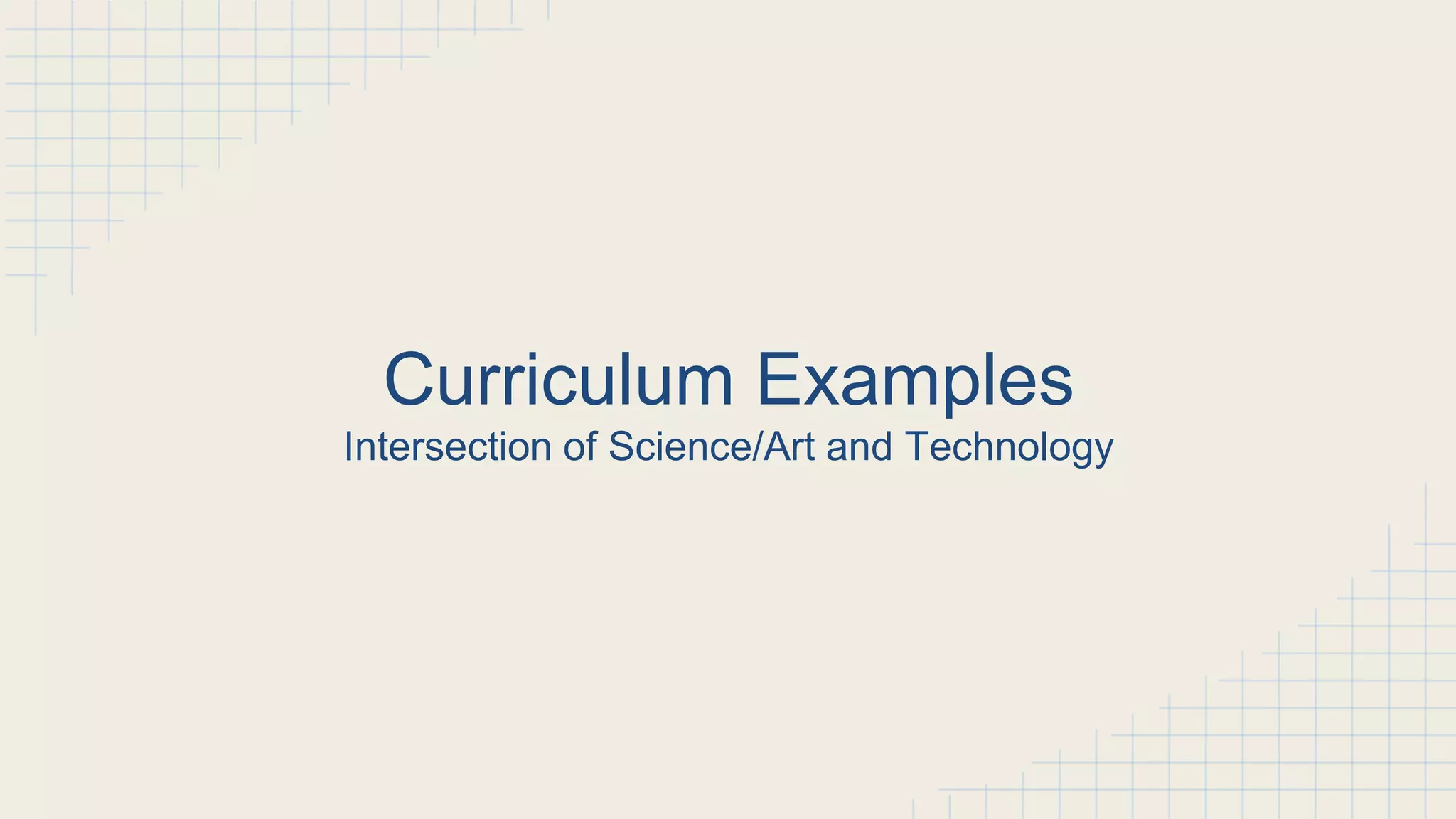
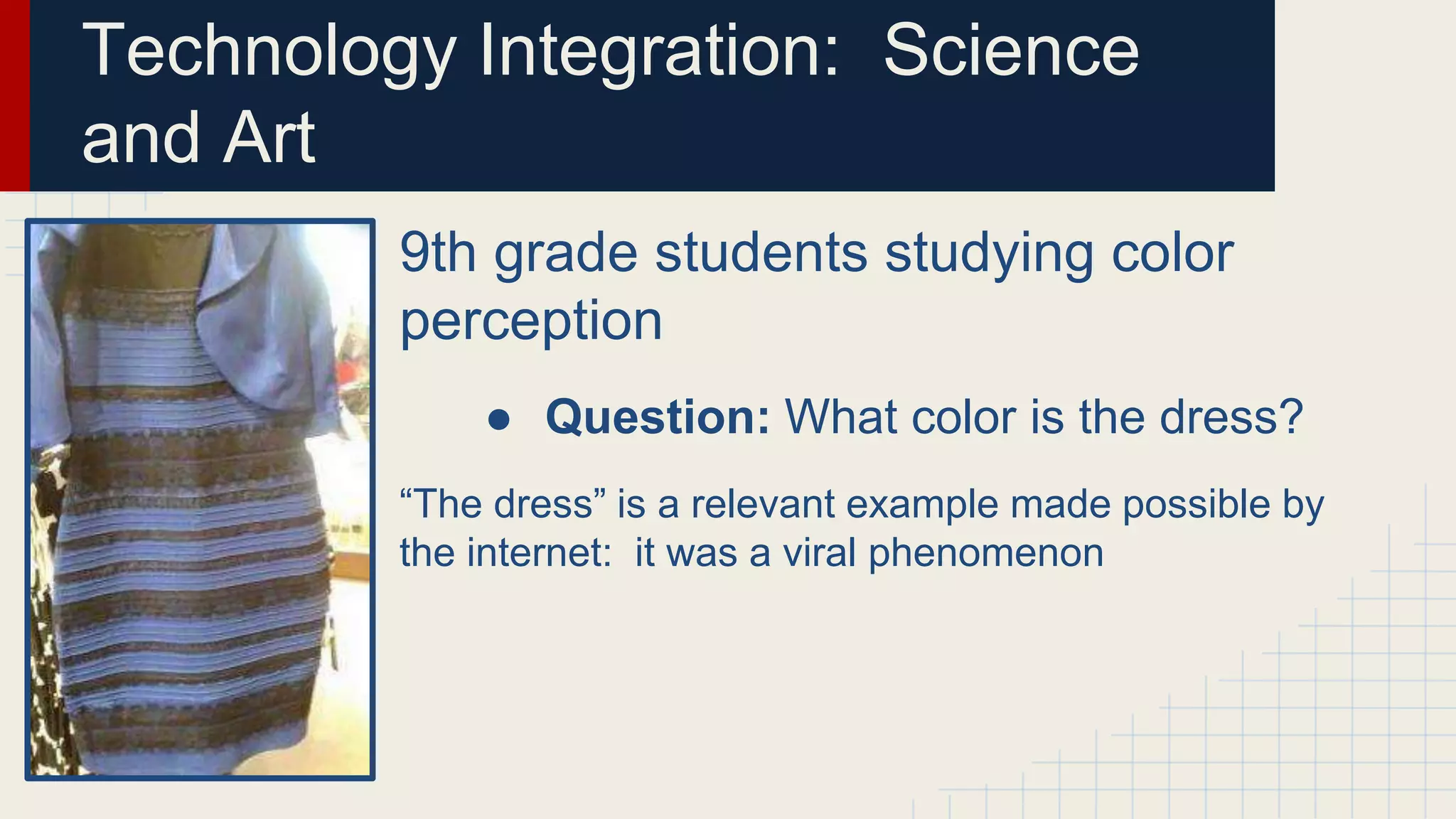
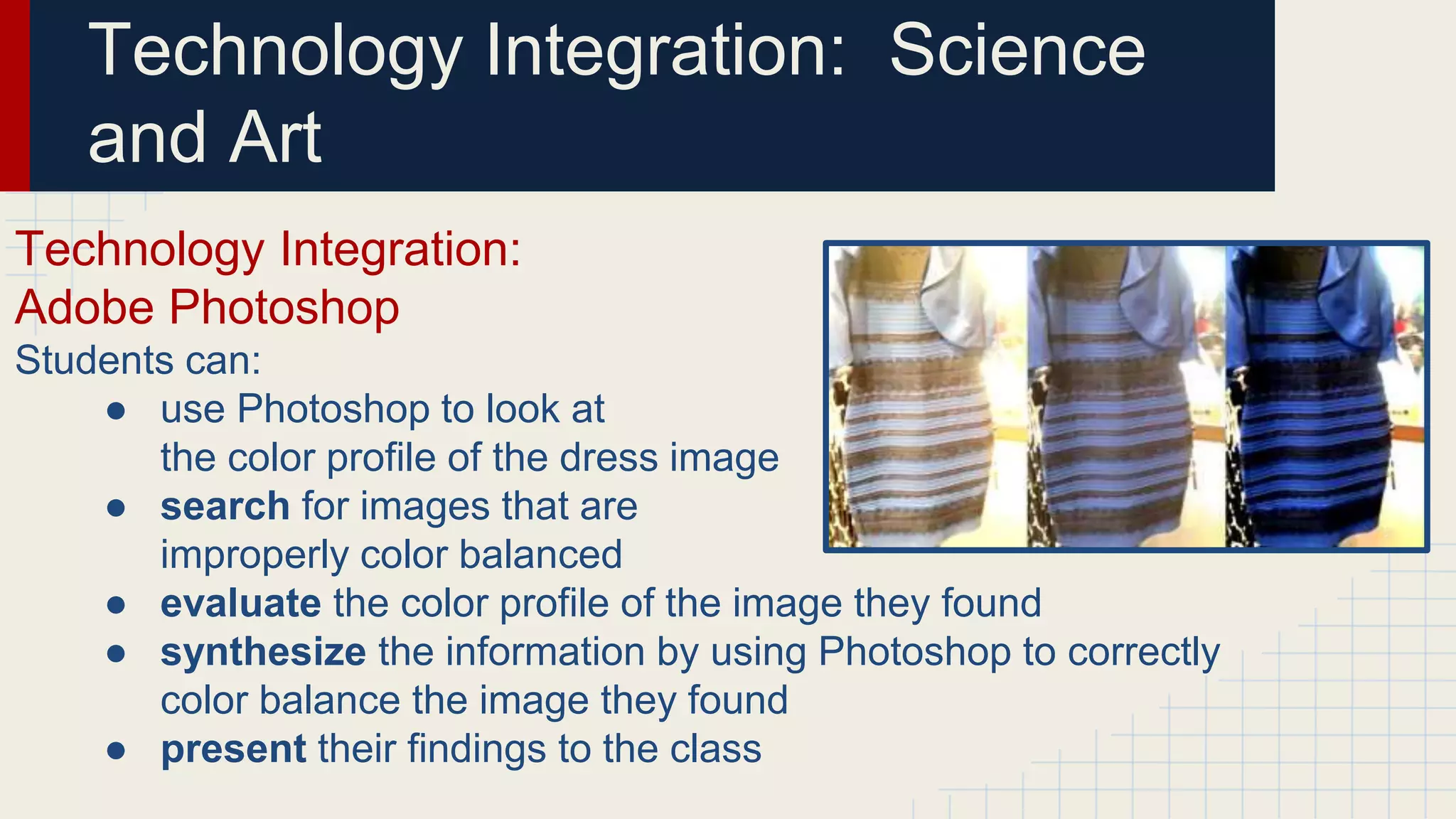



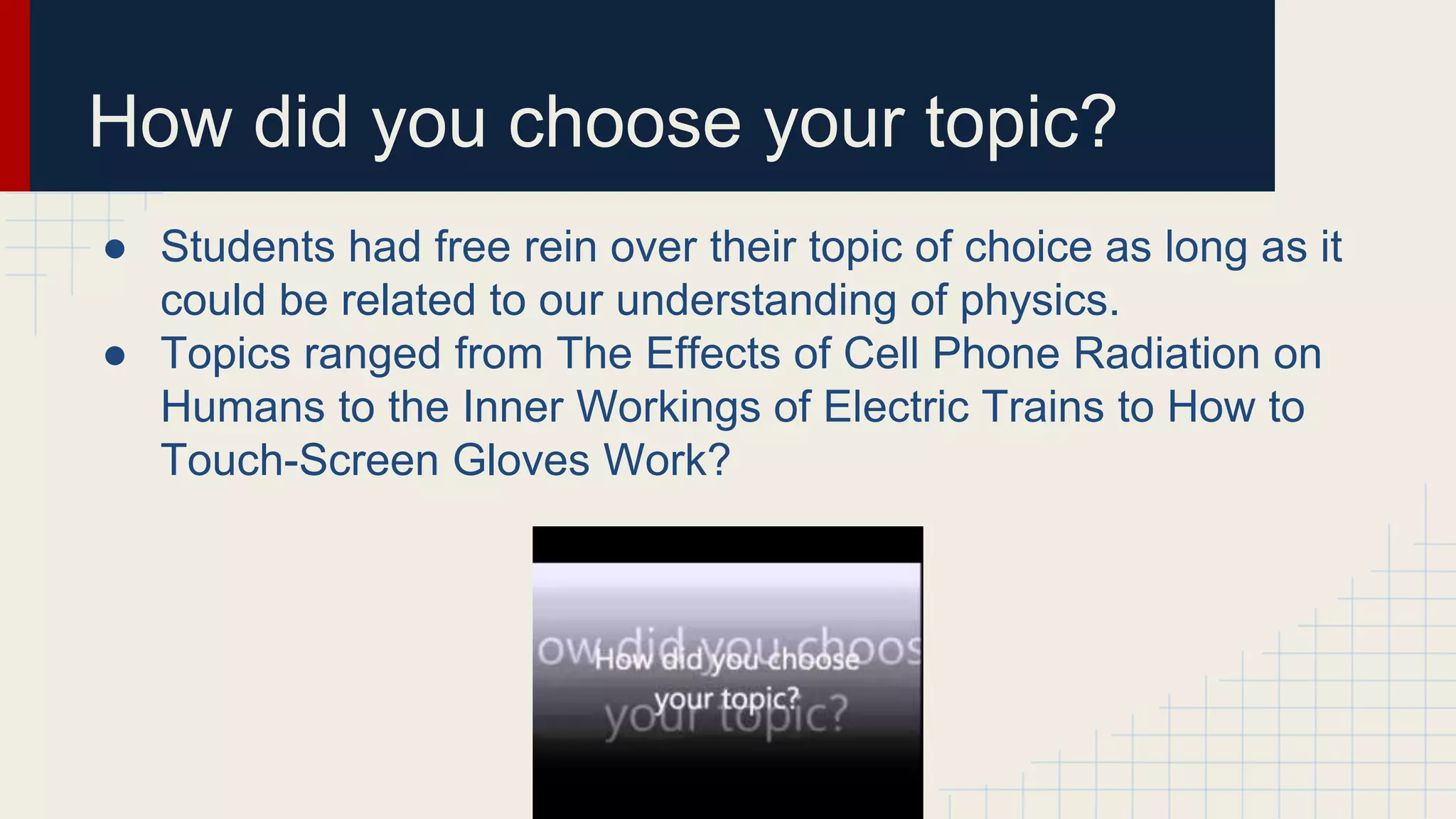
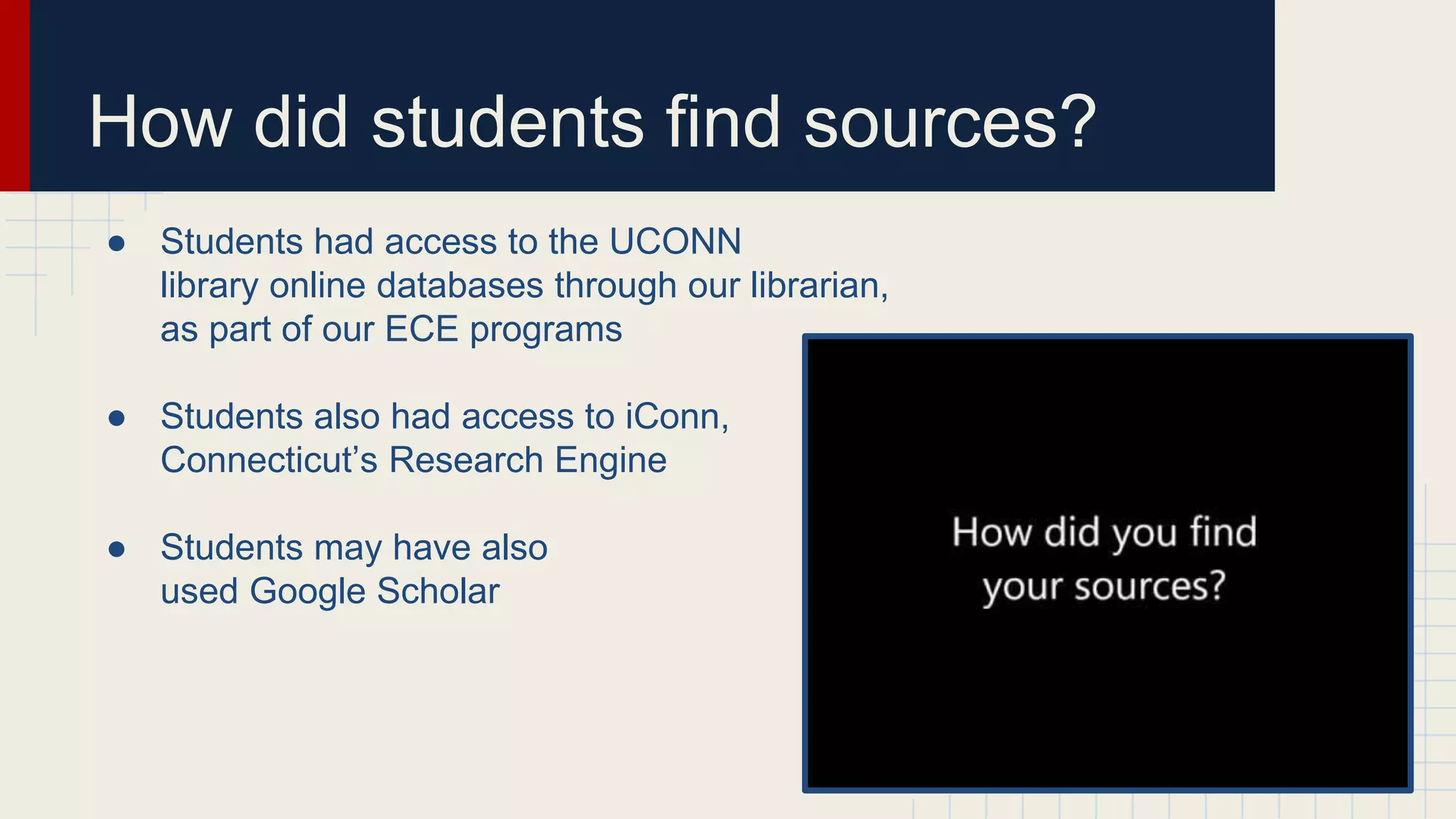


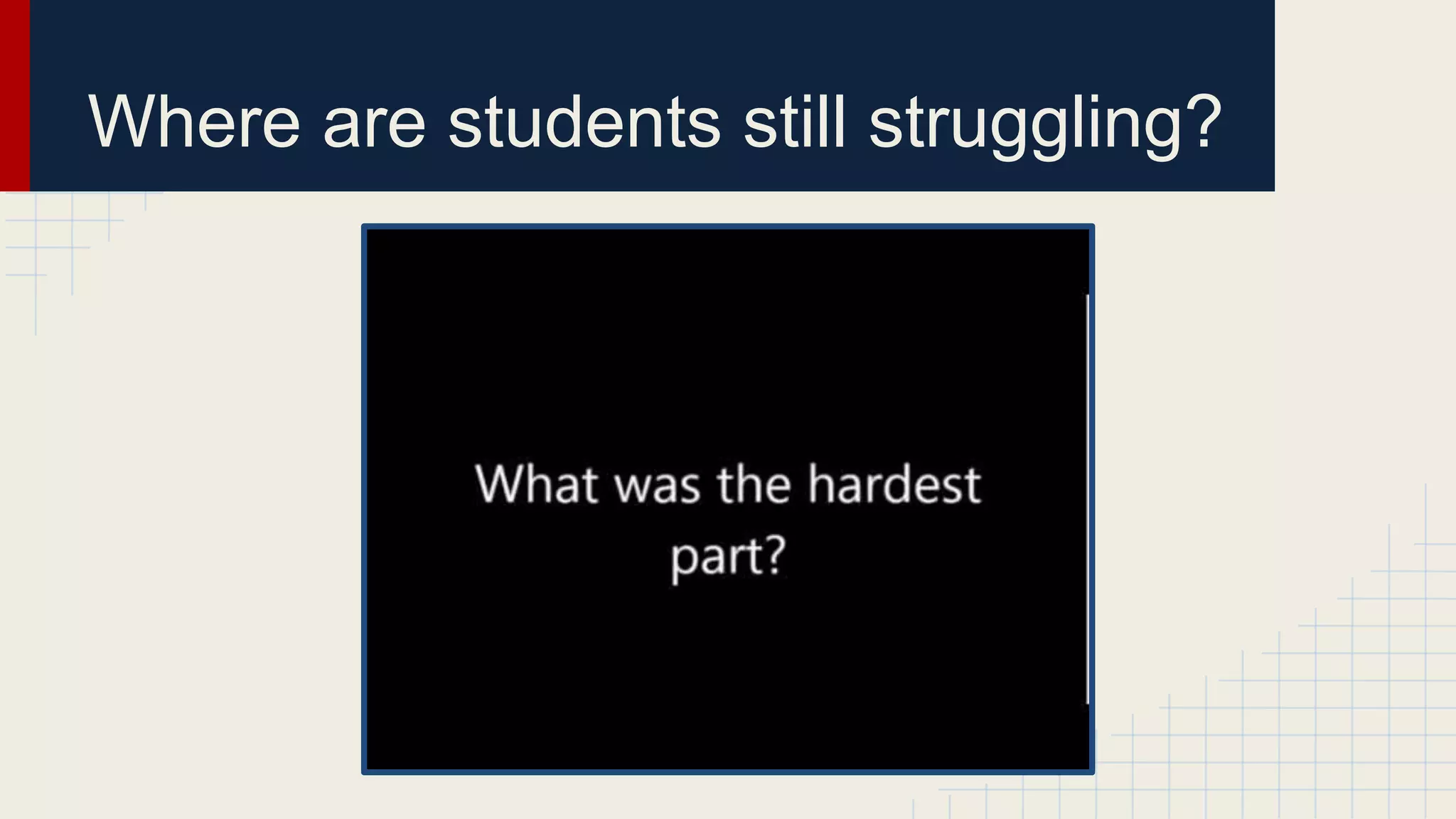
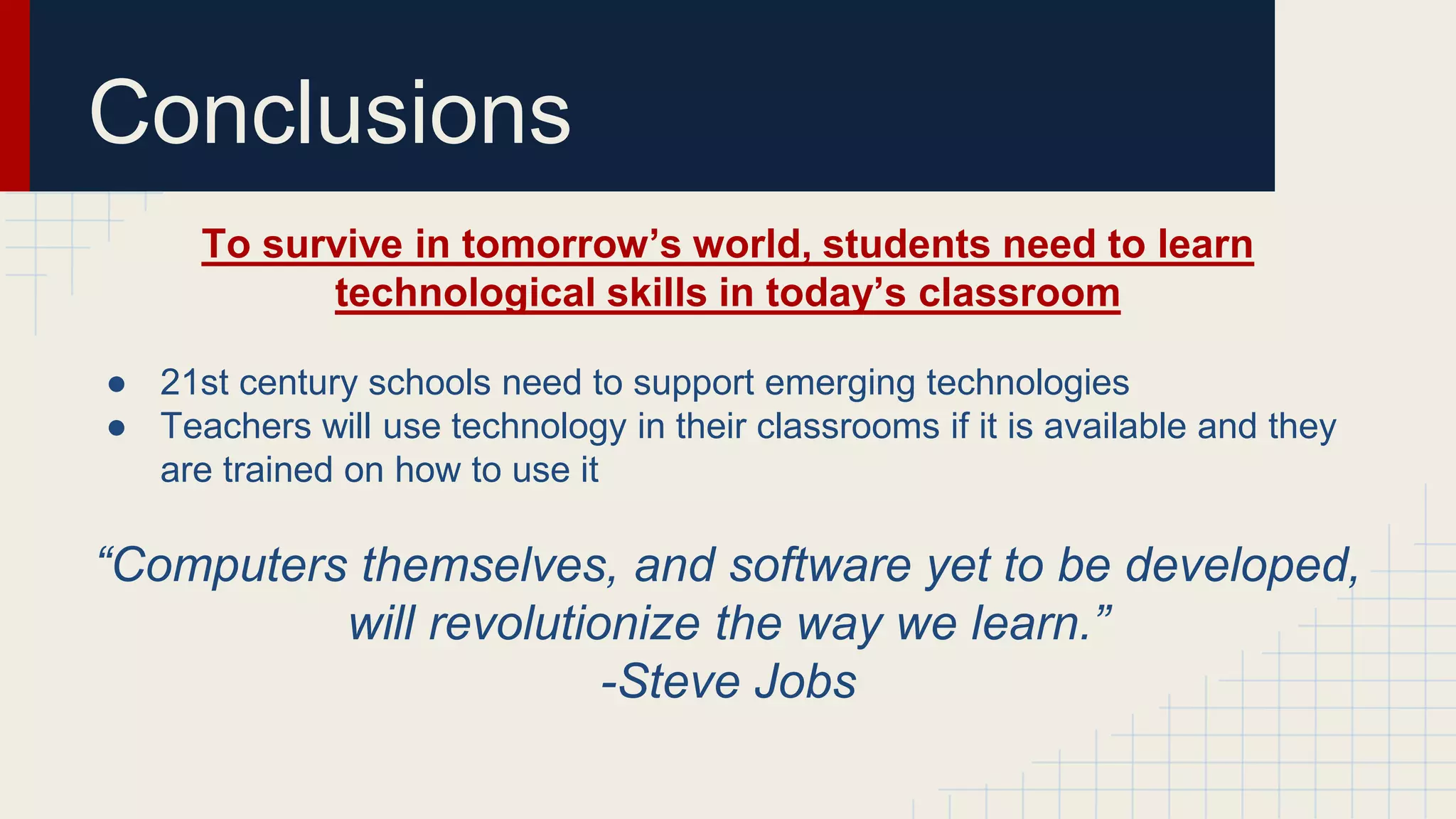
![References
Drew, S. V. (2012). Open Up the Ceiling on the Common Core State Standards: Preparing Students for 21st-Century Literacy—
Now. Journal of Adolescent & Adult Literacy, 56(4), 321–330.
Leu, D. J., Kinzer, C. K., Coiro, J. L., Castek, J., & Henry, L. A. (2013). New Literacies: A Dual-Level Theory of the Changing
Nature of Literacy, Instruction, and Assessment. In D. E. Alvermann, N. Unrau, & R. B. Ruddell (Eds.), Theoretical models and
processes of reading (Vol. 6, pp. 1150–1181). International Reading Association. Retrieved from
http://www.reading.org/Libraries/books/IRA-710-chapter42.pdf
Moll, M. (n.d.). 5 Must-Have Tech Skills for College Students - US News. Retrieved April 10, 2015, from
http://www.usnews.com/education/blogs/college-admissions-playbook/2014/01/27/5-must-have-tech-skills-for-college-students
Common core state standards for English language arts & literacy in history/social studies, science, and technical subjects [PDF].
(2015). Retrieved from http://www.corestandards.org/wp-content/uploads/ELA_Standards.pdf
The Top 10 Tech Skills Your Teen Needs Now | Education.com. (n.d.). Retrieved April 10, 2015, from
http://www.education.com/magazine/article/The_Top_10_Tech_Skills_Your_Teen/](https://image.slidesharecdn.com/integratingonlineresearchskillsandccss-150707141606-lva1-app6892/75/Integrating-online-research-skills-and-ccss-53-2048.jpg)